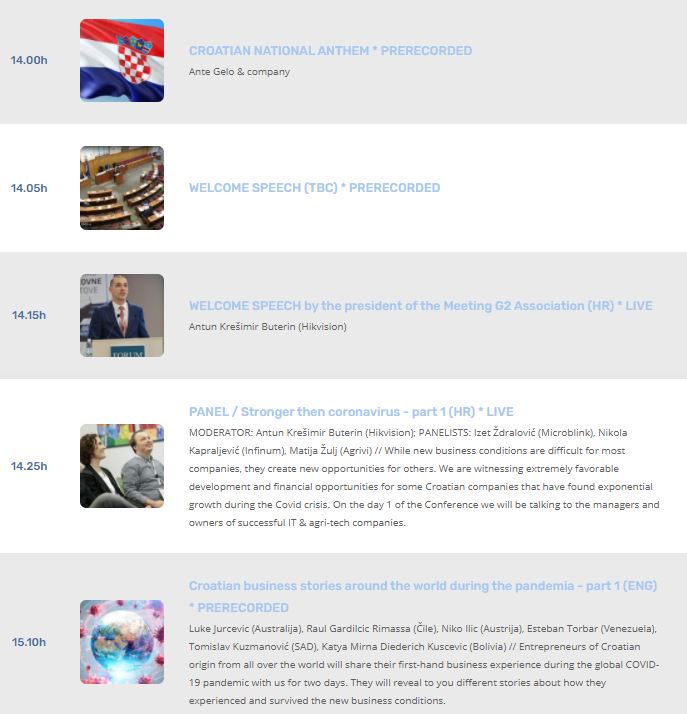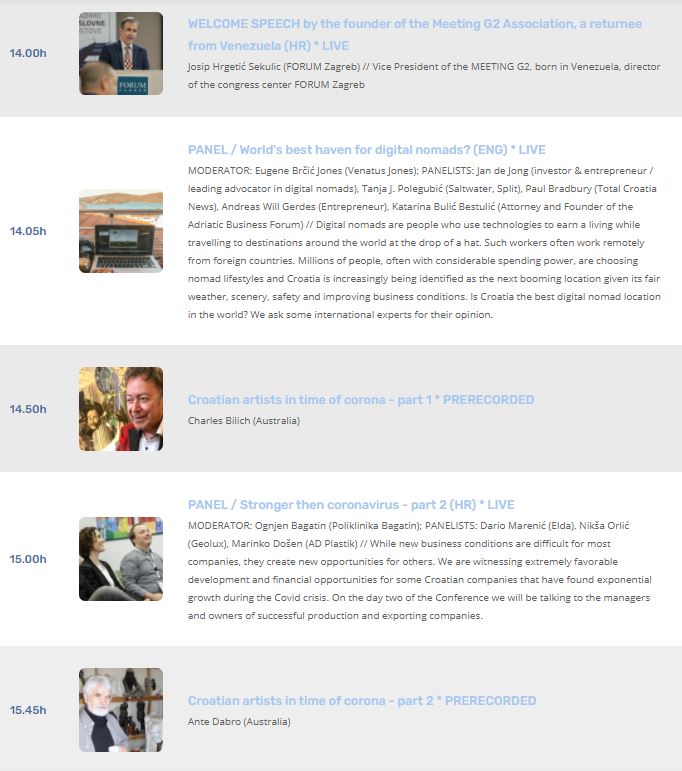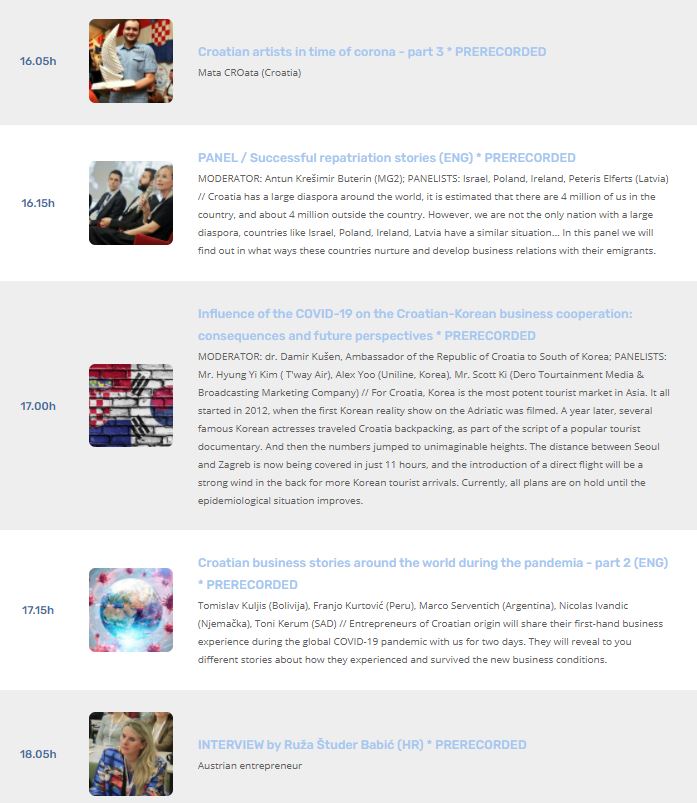Who is Gabriel Boric, and Why Should Croatians Take Notice?
16 March 2022 - Last week, Chile swore in Gabriel Boric, a former student activist and member of the Croatian diaspora, into the nation’s presidency. At 36, Boric is the youngest Chilean to hold this office, taking on the role as Chile undergoes an essential social and political transition. This is most apparent given that the outgoing president is billionaire Sebastian Pinera.
Small Town Croatian-Chilean to the Presidency
Born in Punta Arenas, a city near the southern tip of the American continent, Boric was born to Luis Boric Scarpa, a second-generation Croatian-Chilean engineer with origins on the Adriatic Island of Ugljan. His mother was Marìa Soledad Font Aguilera, of Catalan descent. Even though his father’s ancestors left the then Austro-Hungarian Empire in 1897, Boric still has relatives on the island, demonstrating the strong ties Croatian maintain with the diaspora.
During his youth, Boric studied at The British School in his hometown. After completing high school, he moved to Santiago, where he enrolled in law school at the University of Chile (though he never graduated), where he was involved with student politics. During this time, he became president of the University of Chile Student Federation. While president of the student federation, he witnessed the second wave of protests for reform of the Chilean educational system, a movement that started in response to policies that were relics of the Pinochet dictatorship of the 20th century. Boric became one of the leading spokespersons from the Federation of Chilean Students, gaining him initial recognition within the political sphere.
Boric took the next step in his career in 2013 when he ran as an independent in his first parliamentary election, campaigning in his home region of Magallanes. Despite being outside of either of the Chilean traditional bi-nominal coalitions, he won, taking a seat on the Commissions for Human Rights and Indigenous Peoples. Since then, Boric has been a consistent voice for education reforms and youth issues.
Leading During a Time of Change
After winning reelection in 2017 by an increased margin, Boric became part of a new political group called the Social Convergence, which resulted from a merger of a previous social-liberal party he was previously associated with. In 2019, protests erupted in the capital, initiated by a proposed increase in public transit tariffs. This marked the beginning of a significant socio-political shift within Chile, a trend that would eventually lead to Boric’s election as president.
Boric’s road to the presidency was not immediately clear. Last year, election polls showed two of his opponents Sebastián Sichel and then José Antonio Kast, as front runners for the position. Boric came second to Kast in the first round, moving on to the second round. On 19 December 2021, Boric won the second round, and on 11 March 2022, he was sworn in as president of the Republic of Chile. “Before the people, I make my pledge,” he said.
Chile is a country in search of change. For many, Boric and his political allies represent a move away from deep-rooted social inequality, which affects income, healthcare, and education. His administration will conduct a referendum on a new national constitution, replacing the Magna Carta implemented by Augustino Pinochet’s dictatorship.
In the wake of the COVID-19 pandemic and military aggression in Eastern Europe, Boric is leading his country during a time of significant historical adjustment. With a cabinet mainly containing young people, the South American nation is set to begin a political cycle focused on the feminists, environmentalist, and social-democratic views that permeate amongst the youth of Chile and much of the world at large.
Boric will have to contend with the aftermath of a pandemic, high inflation, and political divisions that pose a tangible threat to the young leader’s visions of healthcare, pension, and environmental reforms. So, as inauguration festivities unfold and diplomates gather in Santiago to congratulate the second-youngest head of state, a nation waits in anticipation for the sweeping reforms they were promised during the election campaign.
For Croatia and the members of its far-flung diaspora, Gabriel Boric serves as an example of the achievements of the descendants of emigrants who left long ago. These people would likely never be able to imagine the success that their children, grandchildren, and great-grandchildren would ever achieve. Regardless of political affiliation, Croatia will take notice of Gabriel Boric because his story is a testament to the emigrant story that the southeastern European nation knows so well.
For more on politics in Croatia, follow TCN's dedicated page.
5 Things I Miss About Living in Ireland
Less sentimental, more practical: a fitting description for things you'll miss about living in a foreign country, compared to those you like best about your homeland. A look at a few things that Ireland does just right
In recent weeks I’ve been writing a lot about my impressions of Ireland as a Croatian emigrant. Looking back to some of the previous pieces, I feel I’ve been a bit too critical for the most part: who can afford those rent prices? The weather is awful! Eesh. One would think I was dragged there against my will.
On the contrary - I find the country and its people wonderful and I really enjoyed the experience overall. Since I’ve already come up with a list of things I missed about Croatia, it’s only fair that I present a few counterarguments because there are quite a few things that Ireland does just right. Such as…
1. Pubs & pints
Surprise, anyone? I didn’t think so. Irish pubs serving Irish beer exist all over the world, including Croatia, but they just pale in comparison to the real thing. There’s something about the essence of a real Irish pub that can’t be put into words: it’s an institution, a place of gathering, a source of joy, a home away from home. And the pints? Good Lord. The Croatian craft scene has really taken off in recent years, but it’ll take quite some time before we see a dozen outstanding local beers on tap in an average neighbourhood bar.

Gonzalo Remy / Unsplash
And look, I get that people are homesick and want to hold on to something familiar. But seeing an occasional Croat ask where they can get Ozujsko or Karlovacko in Ireland just makes me sad. Get yourself to the nearest pub, you ingrate, and get a proper pint.
2. Never missing 'one more paper'
One of the things I liked most about living in Ireland was the absence of the Kafkaesque bureaucratic machinery that Croatia is notorious for. I brought along a folder chock-full of personal documents: birth certificate copies, translated degrees, tax reports. Domovnica? Sure, you never know, whispered the tiny voice in my head, battered and bruised by countless government office mazes, fees, duties and stamps.
The folder went unopened for the next three years. Most things are done online these days - I booked an appointment to obtain a PPSN (Personal Public Service Number, the Irish equivalent of OIB) before I even arrived in Ireland. Revenue, the much more positive-sounding counterpart of Porezna uprava, has a fantastic comprehensive website and an equally great online service where filing your annual tax return only takes a few clicks.

Wesley Tingey / Unsplash
Sure enough, Croatia’s making progress in this regard as well; e-porezna and e-citizen services come to mind. The main difference, however? The few times I was required to show up in person someplace, the clerks and officials in Ireland were friendly and helpful, and I never, ever heard the dreaded ‘you’re missing one more paper’.
3. Friendliness
Continuing from the previous point, the Irish are exceptionally friendly, welcoming people. Walk into a shop, a pub or an office and chances are, you’ll be met with a smile and a warm greeting that always feels genuine. The habit is delightfully contagious. I’m not particularly skilled in small talk and usually keep to myself, but found myself engaging in many a chat about the weather or current events with pleasure.
This kind of positivity is rare in Croatia; cashiers, bus drivers, waiters and clerks seem to be cranky most of the time. Instead of a friendly hello, you’re more likely to get a ‘what the hell do you want’ look. Okay, we all have bad days, but I wish we weren’t quite so bitter sometimes. I felt welcome wherever I went in Ireland, and I now find myself missing the chit-chat.
4. International cuisine
The other day, I saw an ad for a Thai restaurant opening in Rijeka and I positively squealed. International cuisine doesn’t really have a presence in my town and currently totals one Chinese restaurant, one Spanish restaurant, and two sushi places. Zagreb has it much better in this regard, but beyond the capital or perhaps the leading tourist destinations on the coast, you won’t have much chance of exploring other cultures’ gourmet specialties.
Cork was a different story. Owing to immigration from all parts of the world, Ireland is growing more diverse with time and so is its food scene. I had a great Syrian bistro across the street from my place, dozens of Chinese and Indian restaurants to try out, and my favourite find was a Nepalese restaurant which served phenomenal dumplings and curries so intense and flavourful, they made my head spin.
International grocery stores are scattered all over town. You won’t have any trouble sourcing various imported foods if you’re looking to switch up your weeknight cooking and practise making something new and delicious. Once you get accustomed to this, combing the aisles of Croatian supermarkets in search of a good oyster sauce can get pretty frustrating. Some ingredients are either extremely hard to find or ridiculously expensive in comparison to their prices in Ireland.
To be fair, this is not an exclusively Irish thing, but it just goes to show how much we love convenience - it's easy to get used to most things being easily accessible.
5. The scenery

Sean Kuriyan / Unsplash
The Irish landscape is so spectacularly beautiful, it helps tolerate the unforgiving weather. It’s not like Croatia lacks in natural wonders, it’s just that Ireland looks different. The steep dark cliffs rising from the ocean, vast stretches of sandy beaches, lush green pastures dotted with cows… Absolutely stunning. Bad weather doesn’t diminish the beauty of this land; overcast skies or a bit of rain and fog only add a mystical, atmospheric quality to the environment.
While I did long for the unparalleled Adriatic views while I was away, I must say I grew quite fond of the Atlantic. I’ll miss the cliffside hikes and the unreal colours found on the Irish coast.
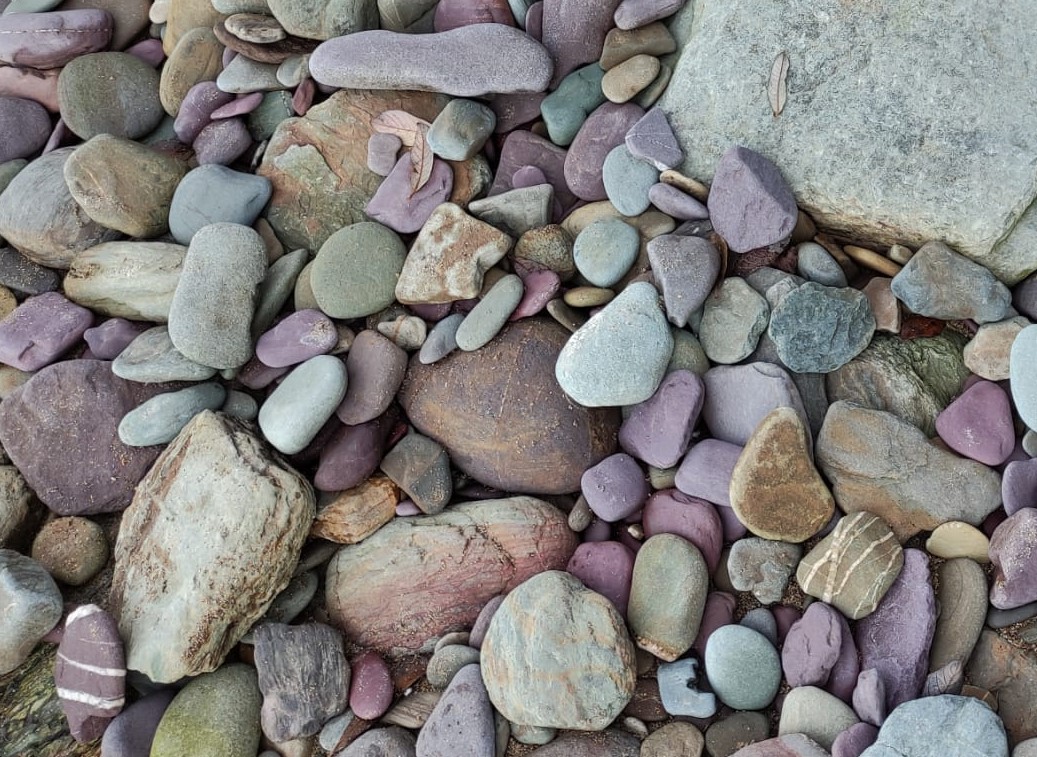
For more news and features from the Croatian diaspora, follow the dedicated TCN section.
The Realities of Croatian Emigration to Ireland, Part II: Work
Continuing our series on Croatian emigration to Ireland, a look at the topic that drives most people to emigrate in the first place: jobs, paychecks and everything in between
To paraphrase a pop art icon, just what is it that makes Ireland so different, so appealing? To any Croatian person frustrated with their miserable economic prospects, it’s always been all those jobs that are readily available. It’s so easy to find work!, people will tell you. And it pays well!
After three years in Ireland, I have a bit of perspective in this regard, so... Let’s unpack that.
1. The land of opportunities
Ireland was widely known for having the fastest-growing economy in the EU year after year since 2014… until a pandemic threw a wrench in it. Much like in the rest of the world, Covid-induced lockdowns caused unemployment to soar - from 5.9% in July 2019 to 19.1% in July 2020. The trend kept up this year as well, and things only started to look up after the reopening of outdoor hospitality in summer.
The labour market in Ireland is not expected to recover to pre-pandemic levels of employment until 2024. Not the best time to set sail for Ireland in search of a better life, perhaps. It’s quite a depressing picture, and the prospects for those living in Ireland don’t seem promising at the first glance. And yet… Despite all troubles in the last 18 months, there was a 56% increase in job vacancies on the Irish employment market in Q3 2020 after the initial crash. A year later, and a quick look at the leading job sites shows there’s no shortage of work available.

Markus Spiske / Unsplash
Let’s start with the group that seemingly made the best choices in life. Anyone working in IT would likely score a job in the time required to read this article - tech tops the list of leading industries in Ireland, and not without reason. Low corporate tax and the constant influx of skilled international workers have foreign investors flocking to the only remaining English-speaking EU country. Google, Twitter, Facebook, Microsoft, PayPal and other tech giants set up their European headquarters in Dublin; Apple has a base in Cork. Engineers, developers, data scientists, analysts and the like will always have their pick on the market as IT experts remain highly sought after.
For the rest of us mortals, there’s the wide umbrella of the tertiary sector. Most immigrants to Ireland, including Croatians, are likely to seek employment in hospitality, hotels, customer service, healthcare and assisted living, beauty and wellness, grocery retail, repair and maintenance, etc.
 Etienne Girardet / Unsplash
Etienne Girardet / Unsplash
There’s a massive labor shortage across other industries as well: transport, construction, manufacturing. In recent years, Irish employers have expanded their search to the continent, hosting open days in several Croatian cities at a time in hope of attracting a skilled workforce. Nurses and caregivers, professional drivers and warehouse operatives, all are in constant demand.
2. Dynamic, fast-paced environments
There are three main ways to find a job in Ireland. Recruitment agencies make the process more streamlined and less stressful for jobseekers who have only just arrived and have yet to get acquainted with the intricacies of the job market. Depending on the industry and the employer they represent, some agencies will also assist new hires with relocation and paperwork.
There’s also the tried and tested ‘door to door’ method - you’ll often see a ‘staff needed’ sign on display when entering a shop or a deli. It’s not unheard of to print out a few copies of your CV, walk around town for a while and land a job in a day or two.

Looks about right. / Markus WInkler, Unsplash
And finally, there are job sites such as Indeed, Monster and Jobs.ie. They’re probably the most popular method of seeking employment and also a nice way to suss out what the job market’s like at any given time of year. Take the holiday season, for example. With Christmas fast approaching and shoppers about to go berserk, there’s a noticeable uptick in demand in customer-oriented occupations.
Anyone who’s ever worked in the lower tiers of hospitality, retail or any kind of customer service would tell you that for the most part, it’s miserable, soul-sucking labour. Well, HR departments bend over backwards to make it seem otherwise, coming up with dramatic ads that often obfuscate what the actual position entails.
It’s a wild wasteland of ‘vibrant’, ‘high-energy’, ‘fun’ work environments.
A prospective cashier will thus have an ‘exciting opportunity’ to ‘become an ambassador’ for the brand’s business. Hotels offer ‘fantastic new vacancies’ for ‘accommodation assistants’ and list ‘ambition to develop’ among the main prerequisites to join the cleaning staff. Gone are the days of straightforward job descriptions. Job titles are replaced with ludicrous synonyms that are meant to sound more exciting or more important, but end up being neither: call-centre agents have evolved into support professionals, advisors, specialists, executives and gurus.
Speaking of gurus, it’s getting hard to discern whether you’re about to join a workplace or a cult. ‘What does living fully mean to you?’, asks an ad for a reservations agent. It’s a lot to consider. As you become part of a ‘close-knit family’ that’s ‘customer-obsessed’, you’ll be ‘resilient and disciplined’ and - my favourite - ‘take instructions with enthusiasm’.*

Ian Schneider / Unsplash
It’s a heavy burden to carry, suddenly becoming an executive or a spiritual leader where you thought you’d only have to answer the phone. Expectations are piling up, with Irish employers demanding years of experience, strong initiative, attention to detail, resilience, discipline, emotional intelligence, warm personality and full flexibility to work shifts within a 16-hour window with schedules changing at a moment’s notice. All things considered, if you see ‘excels in a dynamic, fast-paced environment’ on a CV, it’s code for ‘capable of doing seven things at once under pressure and accustomed to dealing with verbal abuse’.
This is not exactly a groundbreaking revelation, I know - and none of it is exclusive to Ireland. Our tourism-oriented country is heavily dependent on the service industry, and nonsensical corporate language slowly seeps into the Croatian job market as well.
The thing is, that ‘fantastic new vacancy’ in Dublin pays three times as much as you would get for the same shitty job in Croatia. In fact, you get paid two to three times more for low-skilled work in Ireland than you would be in a job requiring a university degree back home.
Emigration 101.
3. The cost of living
The national minimum wage in Ireland is €10.20 per hour (before tax), which is set to increase to €10.50 from January 1st, 2022. To put this in Croatian terms, an average single person working full-time on a minimum wage will soon be earning around €1600 per month net.
At present, the monthly minimum wage in Croatia is roughly €450 net (3400 HRK), set to increase to €500 (3750 HRK) next year.
No wonder the grass seems greener on the other side. Average and median pay in Ireland is even higher, but the majority of foreigners moving to Ireland for work won’t start with an average salary. I’m purposely using the minimum wage as an example, as I feel it’s a more realistic comparison between the two countries that also helps us consider what the bare minimum can get you here and there.
There are many factors at play, of course, and we can’t just straight up compare apples and oranges. What about expenses? It’s not just wages that are higher. I dedicated a whole article to the housing crisis in Ireland, and it’s true that rent alone will eat up a substantial portion of your paycheck. Childcare and car insurance are no joke either. Bars and restaurants are more expensive. So is tobacco. Entertainment costs more in general: nightclubs, music, theatre, cinema. Don’t get me started on hairstylists. It adds up, and if you covet the finer things in life or have any vices to sustain, you’ll need to start climbing the career ladder asap.

Markus Winkler / Unsplash
Here’s the catch, though: in proportion to wages, basic needs cost less in Ireland than in Croatia. To put it another way, less time is spent working in order to afford certain essential goods or services. Rent aside, okay.
Food is the worst offender. Even though we’re all aware that food prices are inflated in Croatia, the extent of it doesn’t really hit you until you’ve returned from Ireland where you earned three times as much, yet groceries somehow cost the same or less than back home. These days, you’ll find us haunting supermarket aisles and woefully voicing our thoughts to no one in particular. ‘Ha ha, look, coffee costs the same as in Tesco. Wait, 25 kuna for oat milk? That’s almost doub- 30 kuna for budget brand rice? 30?? FOR RICE??’
Then there are utilities. Our monthly bills (internet, gas and electric) were only marginally higher than in Croatia. Also, water supply is free. No water bills. Wild.
We try not to be those people who return to Croatia only to start every sentence with ‘well in Ireland, it was like-’, but some days are harder than others.
Once you’ve covered all your basic living expenses, outrageous rent included, you can do a whole lot more with your discretionary income than you could in Croatia. I moved to Ireland in late 2018; in the following year, I paid off a small debt, took a total of 8 international trips ranging from a weekend to 2 weeks in length, and was able to afford all the things I wanted without having to cut corners, only earning a bit more than the minimum wage for the bigger part of the year.
The same job in Croatia would pay enough for me to live month to month and take trips to the local bar once a week. Which brings me to my next point...
4. Dignity and (self)respect in the workplace
You go through a certain transitional period when you move from Croatia to Ireland and start making a steady income. It’s called ‘boy do I have a shitton of money all of a sudden’, lasts anywhere from six months to a year, and involves a lot of frivolous spending. No more depriving yourself of nice things in the name of electric bills! You can now have both - and more! Once the adjustment process is over, you sober up, start budgeting and set up a pension fund.
Jokes aside, viewing your job, your salary and your worth objectively is a skill that takes a while to master. Salaries are discussed in annual amounts before tax, unlike the Croatian monthly net ways we’re used to. Coupled with the higher living standard in general, this makes every figure sound desirable at first. You don’t know the nuances and implications of 19k, 25k, 35k - it all seems like a lot.
What about the kind of work you’ll take on? Suppose you’re not highly skilled in one specific field. If you’re emigrating for economic reasons, you won’t be terribly selective when you first arrive and if needed, you’ll aim lower than usual until you get settled.
How low would you go, and how long would you stay there? The former is a no-brainer; an entry level position will suffice to get you going even if it involves low starting pay. You want to sort out all the paperwork as soon as possible, rent needs to be paid, and honest work is honest work. The latter, however, is where things get complicated. What do you want to make of yourself? How do you measure success?

Alex Kotliarskyi / Unsplash
Take my example. I wanted to get the ball rolling as quickly as possible, so I took a job in customer service I was overqualified for. It soon became apparent that starting over from the bottom creates a certain dichotomy in your self-awareness. The person you are in your home country and the person you are in emigration only partially overlap, both sides engaging in constant dialogue: I have a master’s degree, but take calls for a living. I earn a Croatian MP’s salary taking calls for a living. This is not what I want out of life. This allows me to live quite a comfortable life. I used to declare I would never leave home. I made a conscious decision to be here. And so on, and so on. This unavoidably messes with your head for a while. It’s an uncomfortable process.
Granted, I moved up with time and changed roles within the same company. My salary increased as well, I picked up a few new skills, and the camaraderie we had going on the floor made the daily grind more palatable. The work itself, however, remained unfulfilling, and in normal circumstances, I wouldn’t think twice before looking elsewhere for something better suited to my skills and interests.
But since I wasn’t planning on staying long-term, I let inertia take over. This is okay!, I thought, this is okay for the time being!, all the while not exactly knowing how long that time being would last. It ended up lasting longer than I expected. I built a good reputation for myself, had amazing colleagues and a great rapport with my superiors, paychecks were rolling in, and I got comfortable.
My salary was modest for Irish standards, but served me well enough and I wanted for nothing. I felt valued. This seems to be the case with plenty of other people I’ve met: well-educated, competent individuals, some with a lot of experience under their belt, accepting positions well below their skill level and staying, as those positions awarded them a better quality of life than a managerial rank in Croatia ever did.
This is not to say that employers in Ireland shouldn’t pay their workers more, or that we should settle for peanuts and never aim higher as long as we can get by - on the contrary. But it answers the question of why so many people adjust their criteria significantly when they move to a foreign land to seek work. I’ve seen quite a few vicious articles and comments disparaging people who left Croatia for Ireland ‘only to scrub toilets in exile’. How dare they sell this as a success story? They weren’t willing to do any scrubbing until now, Croatian toilets not good enough for them?
Not when they don’t earn you a living, they’re not. Irish toilets are much better in that regard, along with their offices, call centres, hotels, warehouses and supermarkets. Regardless of profession, workers are respected in Ireland, overtime is paid without fail, and paychecks show up on bank accounts like clockwork. It’s not all milk and honey, but for the most part, the business culture is much healthier than in Croatia. It was nice to experience living in a country where entrepreneurship is encouraged, and breaking into the public sector isn’t the ultimate career goal.
This is a highly subjective topic, and there’s no universal experience which all Croatian emigrants share when it comes to labour. I don’t want to make it seem like all of us work menial jobs and never move up in the world. Some chase promotions, some start businesses, some make the big bucks, some return home disillusioned after a few weeks. Most just want to live a dignified life and then take it from there - and Ireland, on her part, sure provides plenty of opportunities for growth.
*Everything in quotation marks is a direct quote from various advertisements on Jobs.ie accessed on 1/11/2021.
Read the first part of the series on Croatian emigration to Ireland - accommodation.
For more news and features from the Croatian diaspora, follow the dedicated TCN section.
Amazing Croatian Diaspora Returnee Tales: Meet TCN's New Intern from Peru
March 12, 2021 - One of the most heartwarming Croatian diaspora returnee stories I have heard for some time, hear about Jose Alfonso's incredible journey from Lima in Peru to the new Total Croatia News intern.
The Total Project started on the island of Hvar almost ten years ago, when I started a mission to provide information about Hvar to match its quality as a destination. In order to be 'Total', I did an article on every village, including one which was largely uninhabited and totally unpronounceable. I hadn't expected many people to read Introducing the 'Z' Village, Zastražišće, and I was stunned the next morning when the article had 150 Facebook likes, a huge number for me at the time.
I spent much of the morning trying to find the source of my newfound popularity, and eventually, I came across a Croatian diaspora group in Chile, who were commenting wildly and with emotion about my article.
"Look, it is the church in our village. The village of my great-grandfather before he emigrated to Chile."
"Wow, this is so special. I have never seen photos of the village before."
It made me realize that the reach of Total Hvar, and subsequently TCN probably goes a lot further than I realize, and it is a service we are very happy to provide. Over the years, apart from the torrent of abuse I receive from my fans in Australia, I have had constant contact with Croatian emigres in Chile, Argentina, Peru, Canada, USA, UK, Ireland, South Africa, Brazil, and several other countries. That communication has helped me understand one more layer of the complexity of Croatia.
And then, once every couple of years, I get a communication like this, which led to me learning about one of the most heartwarming Croatian diaspora returnee stories I have heard in a while, and to TCN welcoming Jose Alfonso to the TCN team.

The initial email
Dobro jutro, my name is Jose Alfonso Cussianovich, and I’m a Peruvian-Croatian currently living in Zagreb and studying the B1 level of Croatian Language. I was wondering if the intern positions at Total Croatia News were still open. If so, I am highly interested.
Lijepi pozdrav,
Jose Alfonso
We asked him to send a writing sample about how he came to Croatia. And Jose Alfonso sent us THIS.
About my family
I’m 25 years old, and I was born in Lima, Peru. It was probably at the end of the 19th century that my ancestor, Pero Kusijanović, traveled all the way from Mokošica, Dubrovnik, to settle in Peru. He had two children there: Pedro and Mateo, and my bloodline comes from the latter. My family has always been aware of their Croatian roots, but little they knew about Croatia. I guess it was harder back then, for both Peruvians and Croatians, to know more about each other. Throughout the second half of the 20th century, Croatia was part of Yugoslavia, and Peru went through several political changes such as far-right dictatorships, socialist authoritarianism, hyperinflation, domestic terrorism, etc. It could be said that both countries were facing their most difficult times in parallel at the end of the 1980s and early years of the 1990s.
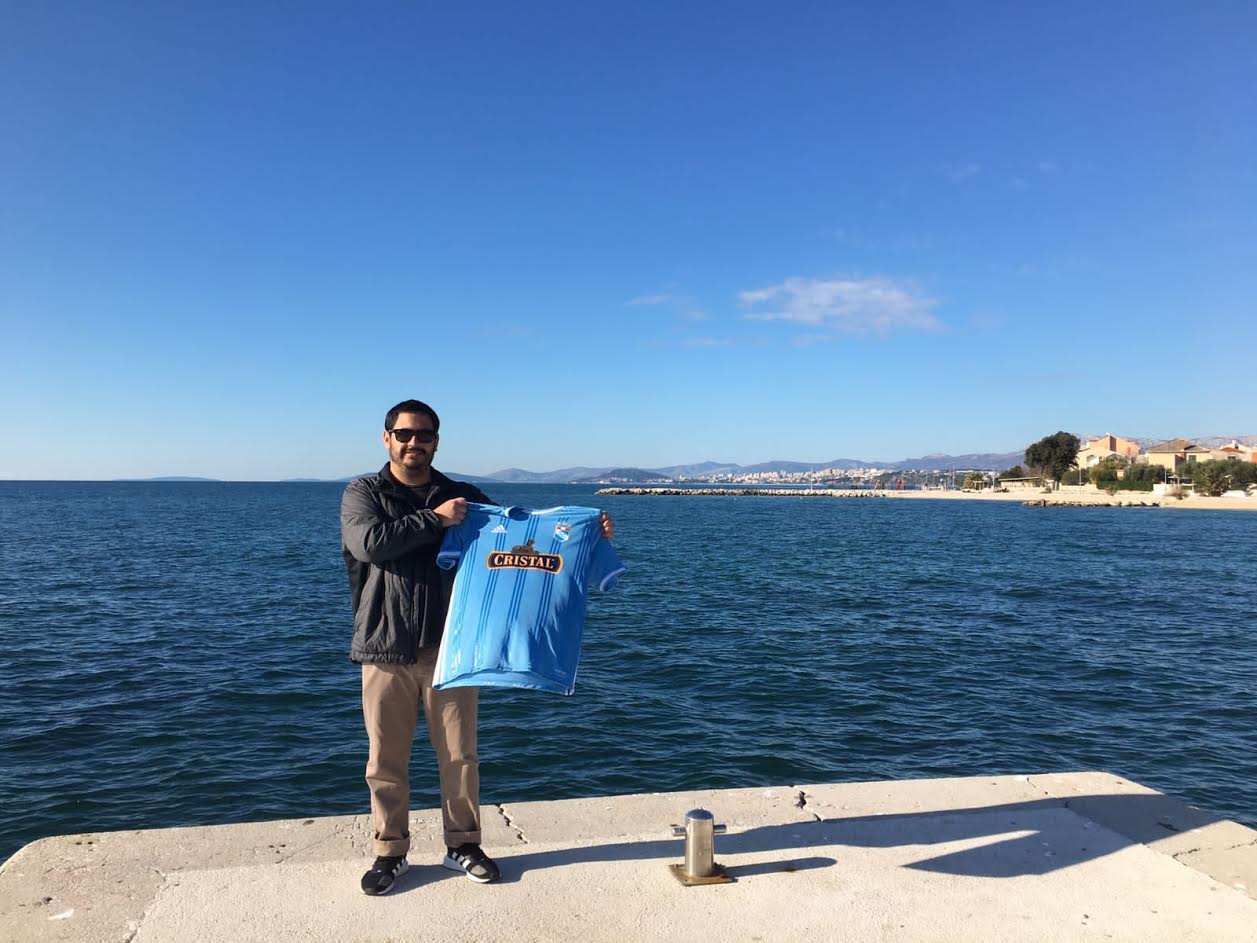
However, during the World Cup in 1998, it was the first time that people in Peru, including Croats there, paid more attention to this small country. Things were relatively better for both countries, and my father told me how he and my grandfather were pleasantly surprised by this unknown country that turned out to hold the roots to our origins. Two years later, my grandfather passed away, but his son had promised to learn more about our Croatian ancestors. And so he did, tracing down Pero’s birthplace and birth certificates.
That’s how he, my two siblings and I, got Croatian citizenship. At that time, around 2002, when we were still very young and attending primary school, living in Croatia, or even visiting it wasn’t an idea in my parent’s head. Another reason to consider back then was the fact that there wasn’t a Croatian embassy in Peru, but only a consulate that worked also as a diaspora center for Croats in Peru. That’s why we couldn’t get a Croatian passport. The only one in our family that had it, was my father. The only way to apply for it was by setting an appointment in the embassy in Chile. Among the many reasons why we didn’t consider it at the time was because of the travel distance to Santiago, the travel expenses, our school responsibilities, the appointments were given for one year after the request and, of course, we never thought we were going to really need it in the future.
The scholarship
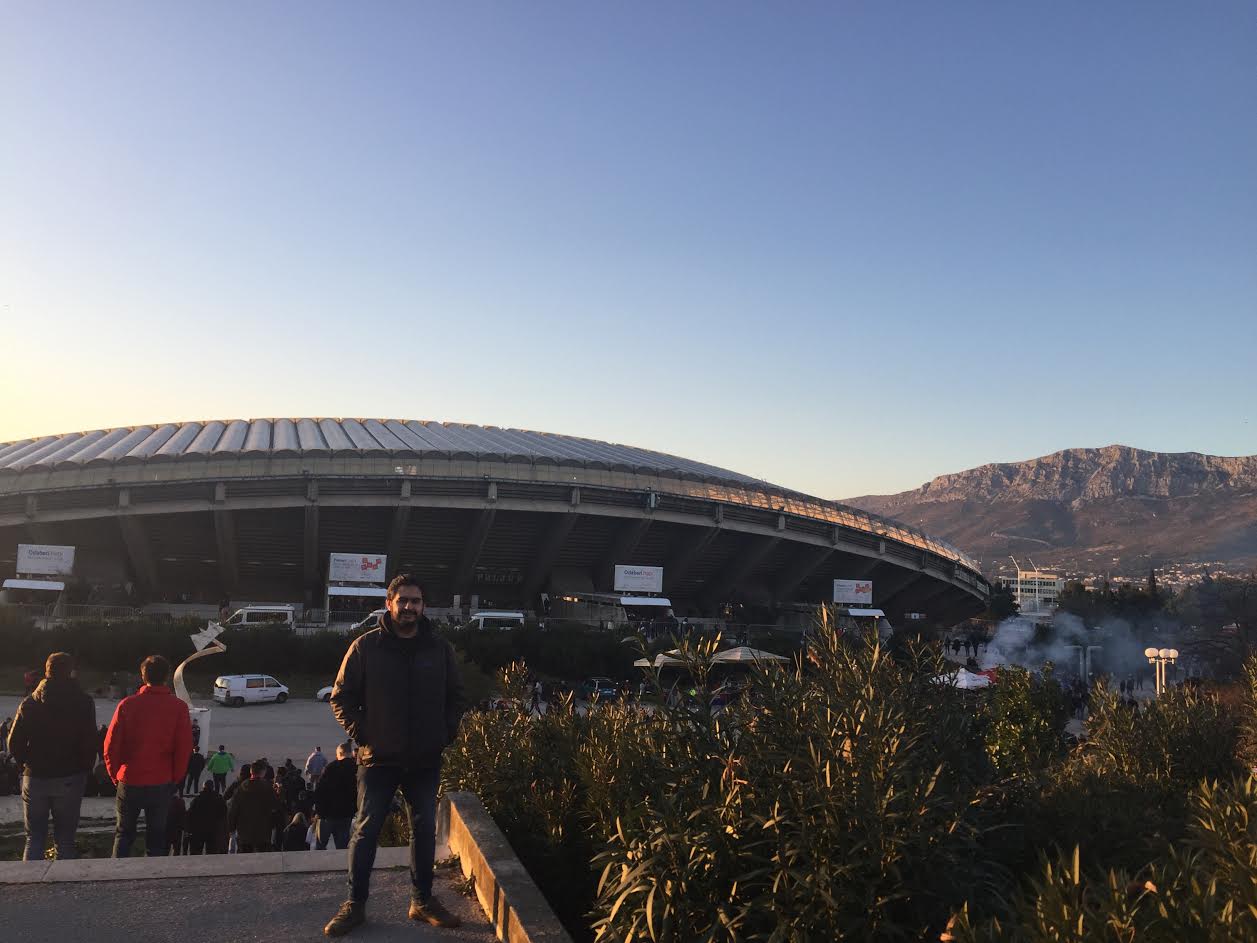
Nevertheless, we’ve always been very close to the Croatian community in Lima. We were always part of the events that commemorated and celebrated Croatian history and culture. Even my parents got married in the Croatian church in our city. In January 2018, we received an email from the Croatian embassy in Chile, notifying everyone from the community that they were sending a representative to help those with Croatian passports for their renewal, and to help those who wanted to apply for a new one.
Me and my siblings got down to work almost immediately by getting all the papers and documents we needed to apply officially, and one of those documents was a letter of recommendation written by a representative of the Croatian community in Peru. In this case, it was the parish priest of the Croatian church in Lima and a close friend to our family, father Drago Balvanović, who helped us. During the meeting we held with him, he told us about this scholarship, promoted by the Central State Office for Croats Outside the Republic of Croatia, aimed at young people of Croatian descent who were looking to study the language in Croatia, in order to reconnect with their origins. The reason it sounded like such an attractive idea to us was that we weren't having a pleasant time in our country. Our financial situation wasn’t the best, the situation regarding higher education and job opportunities in Peru was decreasing, and finally, the growing insecurity in the streets threatened young people every day.
The first to join the initiative and apply was my sister, who at that time had just finished college. She applied for the scholarship to study the Croatian language and culture in Zagreb, and in August 2018 she moved there. My parents visited her a few months later and saw with great joy her daughter, a 25-year-old girl, totally rejuvenated and excited about the future. The weeks my parents traveled through Dubrovnik, Split and Zagreb helped them think of a big move in the short term.
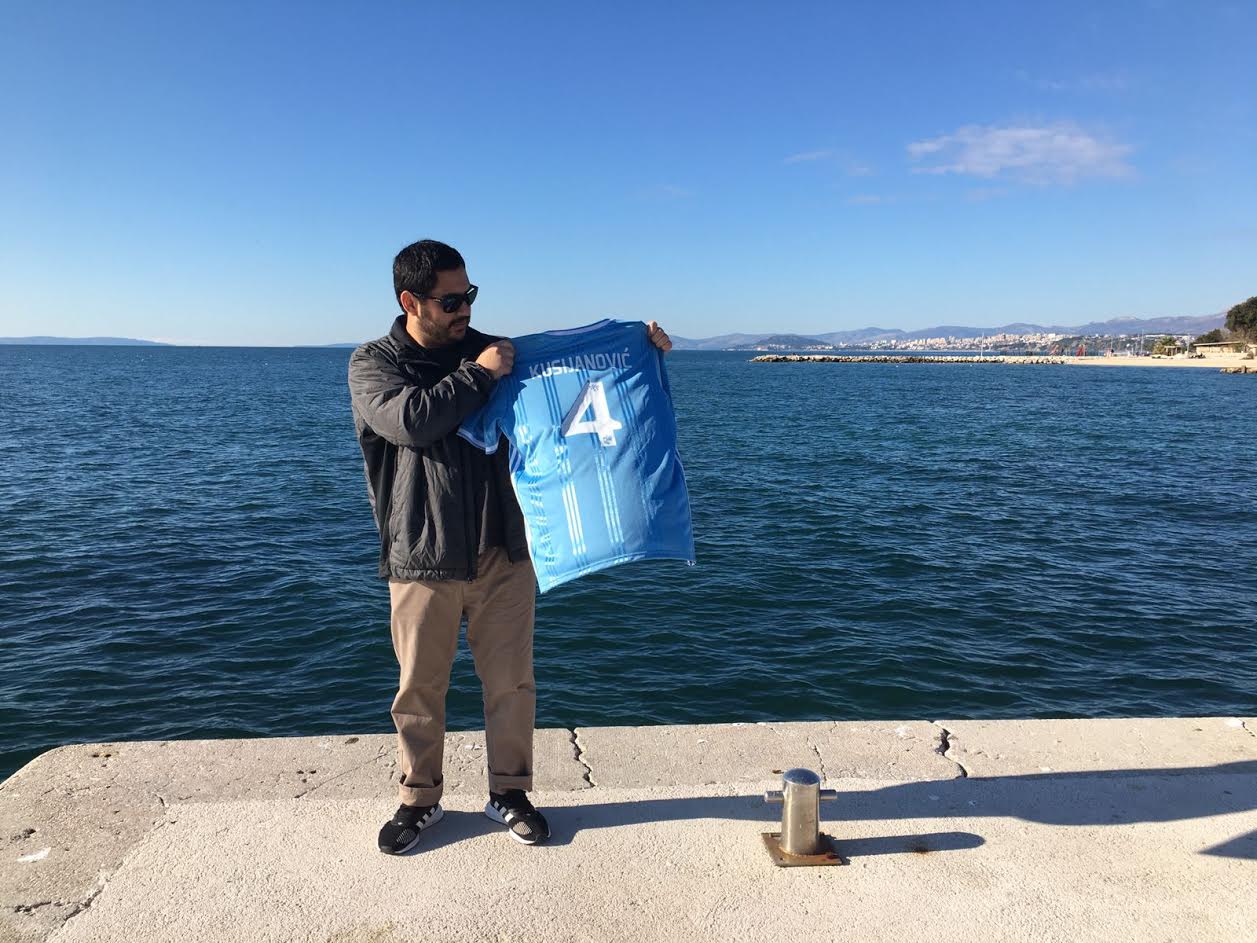
In May 2019 it was my turn to apply since just two months later I was supposed to finish college. My brother, who was still not sure about the career path he wanted to pursue, also applied. Initially, and taking into account my sister's experience, we applied to Zagreb. I thought that studying in the capital would help me to adapt better and faster, and I also understood that the classes were more demanding there.
However, we were told that there were no more places in Zagreb and asked if we would be interested in Rijeka instead. Honestly, I never felt a bit of disappointment when I received this news, and I confirmed my presence in Rijeka without hesitation. In the end, I could say it was one of the best decisions I made.
Moving to Croatia
In October of that year, I traveled to Rijeka and started my classes almost immediately. It was my first time in Europe, and although the first weeks were difficult being away from my family and friends, I must admit that it was thanks to my roommate and the city itself that helped me to adapt more easily thanks to their warm reception. To this day, I haven’t returned to my country. My intention, since I first found out about the scholarships offered by the Central State Office for Croats Outside the Republic of Croatia, was to start a new life here. Regardless of what I would leave behind.
Since then, I have had numerous experiences in Croatia and of all kinds. Clearly, the most anecdotal remains the same: the pandemic. Exactly a year ago, my parents completed the family move to Croatia. They managed to leave the country before the immigration situation worsened. In November of the previous year, my father invested in a couple of apartments in the Diocletian Palace for rental business. While they were searching for a place to live in Split, they decided to stay in one of those apartments. Little did we know...
I was waiting for my second semester of the scholarship to start, and just traveled to some places near Rijeka, as well as attending the opening of Rijeka 2020 and its famous carnival. Classes in the first week of March were postponed for a few days due to the uncertainty of the virus, and it was then that I decided to take advantage of that time to surprise my parents in Split and help them settle down. I would never have imagined that inter-regional travel would be banned shortly after that and I would spend the next three months with them and studying virtually. It was a great opportunity to get to know Split, but definitely not in the best way.
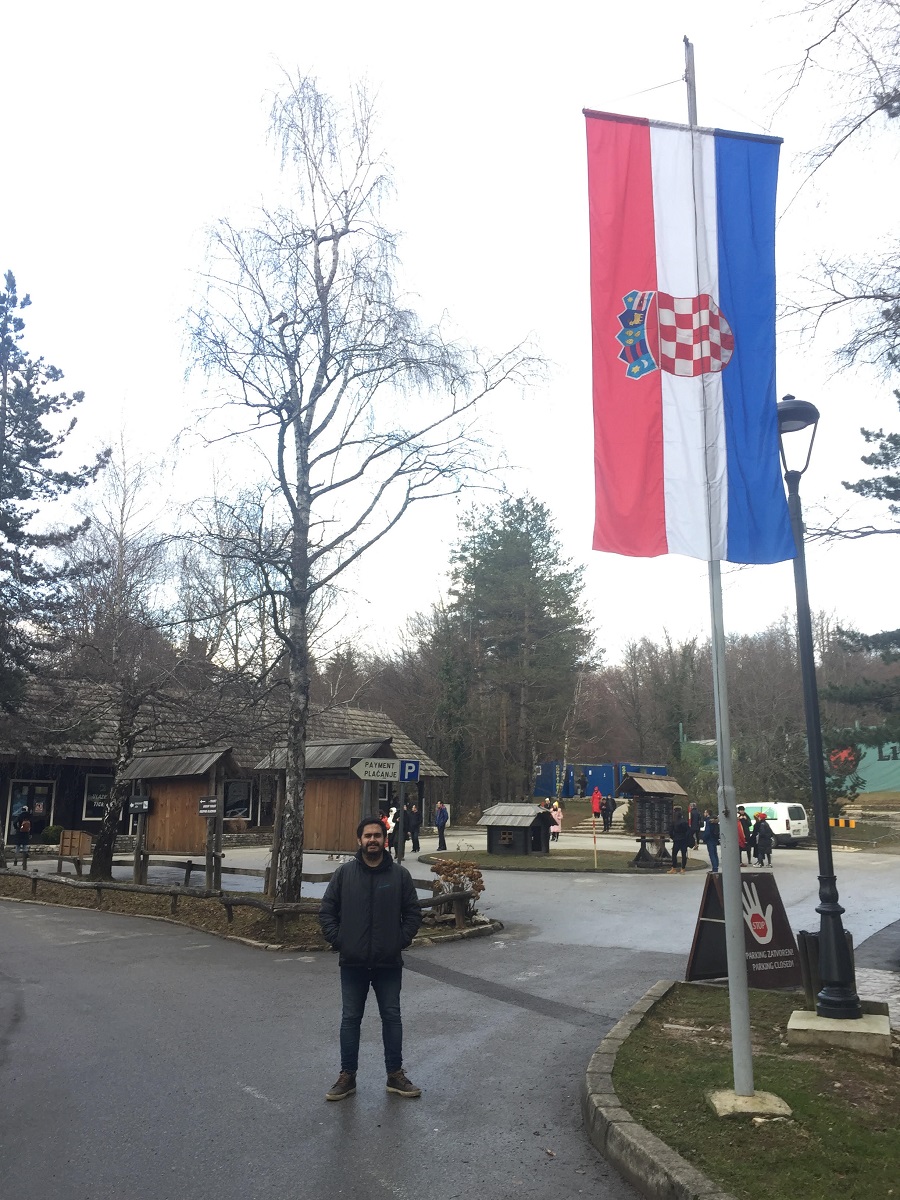
(Plitvice Lakes)
I returned to Rijeka in mid-June to take my exams, and after enjoying a few weeks with my roommate, his girlfriend, and other friends during the first weeks of summer, I decided to go back to Split with my parents. I knew they still needed help, and I considered that what I had learned about the language might be of some use. They were very tense months due to the virus situation, the fact that our investment plan was not taking off due to the restrictions imposed on tourists, and personally due to the fact that I could not get a job to help my parents and become independent. During August and September, I helped them manage the booking site of our apartments and hosted the few guests that arrived.
We moved to the town of Podstrana in July of last year, and that is where I have lived until a couple of weeks ago. In January of this year, I decided to apply for the scholarship again, but this time trying to get a place in Zagreb. My idea, as of today, is to be able to meet people who will help me continue to grow in this country, learn more about the language until I can speak it fluently and fully understand it, and hopefully find a job.
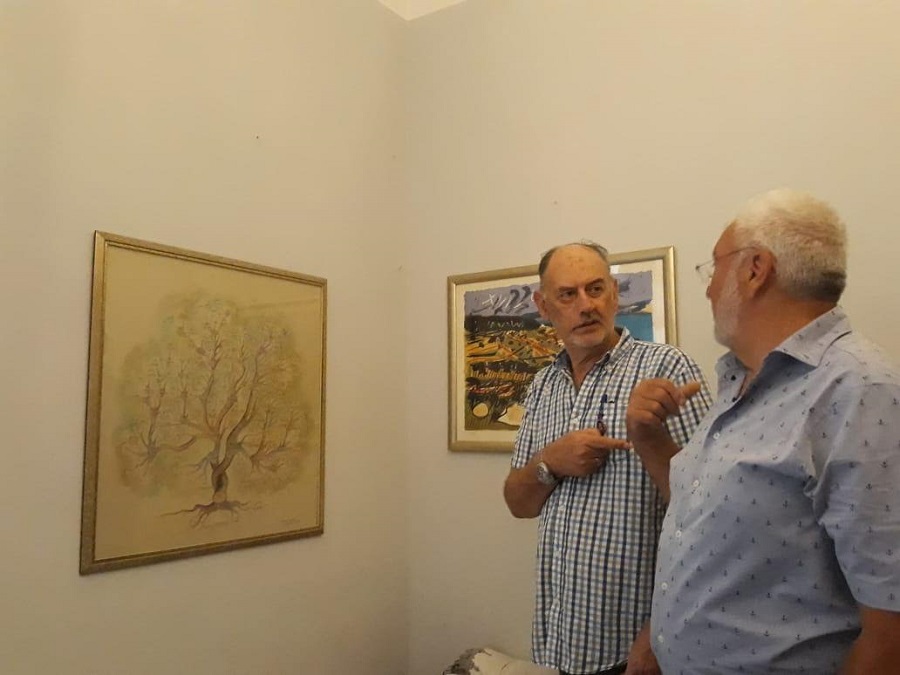
(Dad with distant relative Dužko)
About Total Croatia News
Going back to the time when I was still in Lima, I knew that the decision I had made was a very complex one. I felt that I needed to stay informed and aware of what was happening day to day in the country I was moving to. And not only through breaking news and daily events, but also reports and columns that could analyze in greater depth the current situation within Croatian society. I still did not know how to read or understand the language well, so I was lucky enough to find some media that presented their content in English.
But if it was one that I felt really hooked on, it was definitely Total Croatia News. I'm not a big fan of bad news, since it's basically the only thing you read when you live in Peru in these recent years; but I felt that life in Croatia goes beyond the rankings made by tourist magazines and photo galleries of the islands in the summer. And well, that's basically what I found in the rest of the media. We probably agree on this, but I think there should be a balance between the information that one shares with the population.
It's clear how important it is to motivate ex-pats to reconnect with their homeland, but it's just as important to be transparent and critical when news demands it. That is why I like to read Total Croatia News, and also because of the way in which they confront with great conviction those people who seek to discredit their content for the simple fact of denying information just because they do not agree or do not like it. Just as I saw the opportunity to start a new life in Croatia, when I saw the internship opportunities at Total Croatia News, I felt I had to step forward.
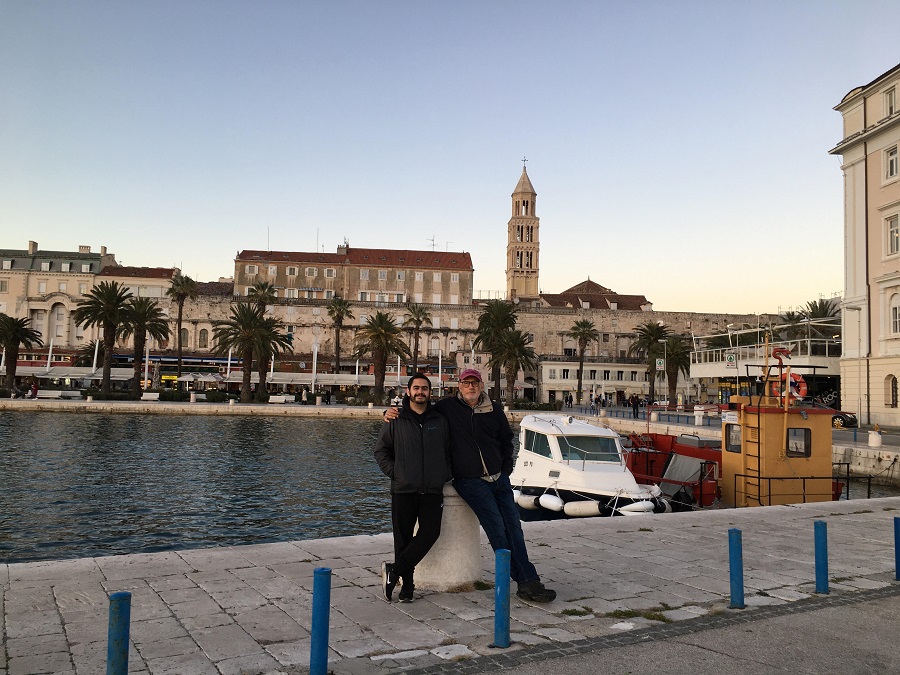
(With Dad in front of Diocletian's Palace in Split)
About myself
Before I entered college in 2013, my father told me that no matter the career I was pursuing, there’s always a way for us for improving someone else’s quality of life. To this day, I still keep that in mind. By that time, I felt the most effective job I could get to help people from a country that holds so many problems, was being a lawyer. However, halfway through my first year, I realized that even if someone’s good for something, you need to be passionate about it. And I didn’t feel passionate about being a lawyer. Shortly after, I knew that what really made me feel passionate and excited was to express myself, and I thought that it was through visual arts I could achieve this goal. I transferred to study Audiovisual Communications, in order to become a filmmaker. The best thing out of it is that I took subjects related to marketing, advertisement, graphic design, journalism, photography and, of course, filmmaking. So far, I haven’t given up on directing films; but I’ve found great interest in documentary filmmaking, journalism, and photojournalism. It might not be as challenging as being a lawyer, but I believe that it is possible to change the way someone thinks or feels for good. I think it is truly possible to have a great impact on a great number of people to change the world.
****
Welcome to TCN, Jose Alfonso. We look forward to working with you to strengthen and develop ties with the Latin American diaspora communities, so that others may follow you in your journey to the Homeland.
For more news from the Croatia diaspora, follow the dedicated TCN section.
Robert Jerin, Tracing Croatian Heritage and Genealogy for 30 Years
February 11, 2021 - Looking for your Croatian roots? Meet Robert Jerin, who has helped countless people connect with their ancestral homeland over the last 30 years.
The wider Croatian family is one of the most diverse on the planet, located in almost every corner of the world. Many people of Croatian origin have only a tenuous connection to their roots of the country their ancestors emigrated from generations and centuries ago.
And many are curious about their roots. Meet Robert Jerin, one of the nicest guys I have met in that wider Croatian family, and a man who has done perhaps more than anyone to connect people with their Croatian heritage and roots, through a combination of heritage tours, a Croatian genealogy guide, as well as an excellent Facebook group, Croatian Heritage and Genealogy.
I met Robert Jerin a couple of years ago for a cold one in Zagreb during one of his heritage tours. We have kept in touch, and I am grateful for his time in taking part in this email interview.
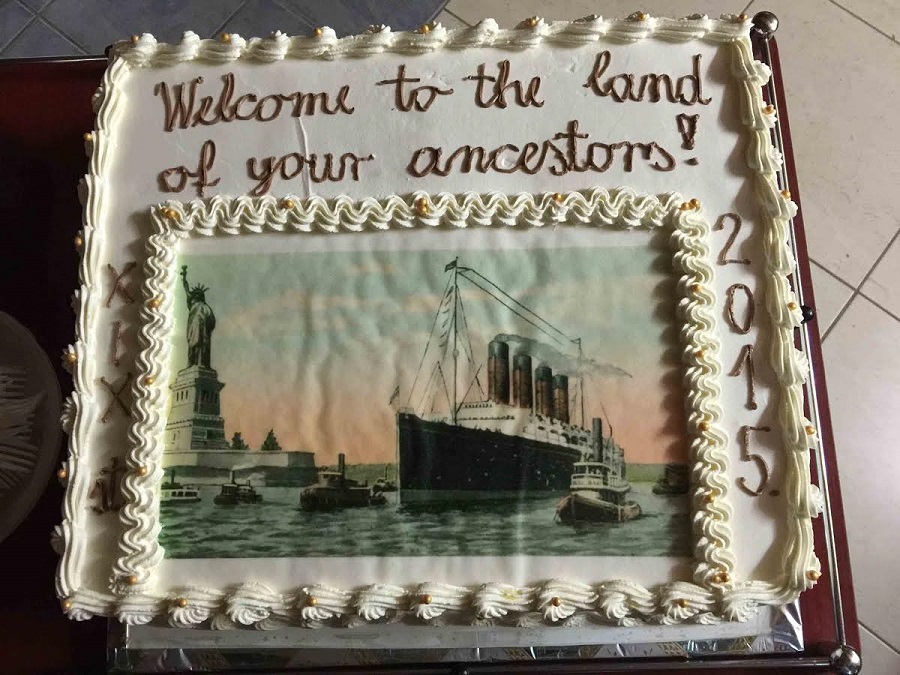
1. You have been running the popular Croatian Heritage and Genealogy Facebook group for several years now. Tell us firstly about your Croatian connection, and why did you decide to start the group?
My connection to Croatia is through my maternal grandparents, who came from the Karlovac/Ozalj area of Croatia. During my growing up years, I spent a great deal of time with them on their farm in Pennsylvania. My mother enrolled me at 6 months old in the Croatian Fraternal Union. For many years I paid little attention to the CFU Croatian newspaper but sometime around 1985 I began to read historical articles. Just before the Homeland War, I sought my Grandparents' birth records, visiting the old Yugoslav Consulate in Cleveland. During that visit, the men standing around kept a watchful eye on me, little did I know that Cleveland was a hotbed for Croatian nationalists.
Then when the Homeland War broke out I emersed myself in all things Croatian: enrolling my children in a Croatian Tamburica group, helping out at our Croatian Heritage Museum in Cleveland, packing humanitarian containers going to Croatia and becoming active in a local Croatian Newspaper, the Croatian Voice. Our family sponsored war orphans in Croatia and we sponsored Croatian War Refugees coming to America. Our first visit was in 1997, which is hard to describe, as I walked between my ancestral villages. Since that time we have been back to Croatia nearly every year since 2005 taking over 700 people on Heritage Tours, where our goal is to connect them with their ancestral culture and in many cases help them find family.
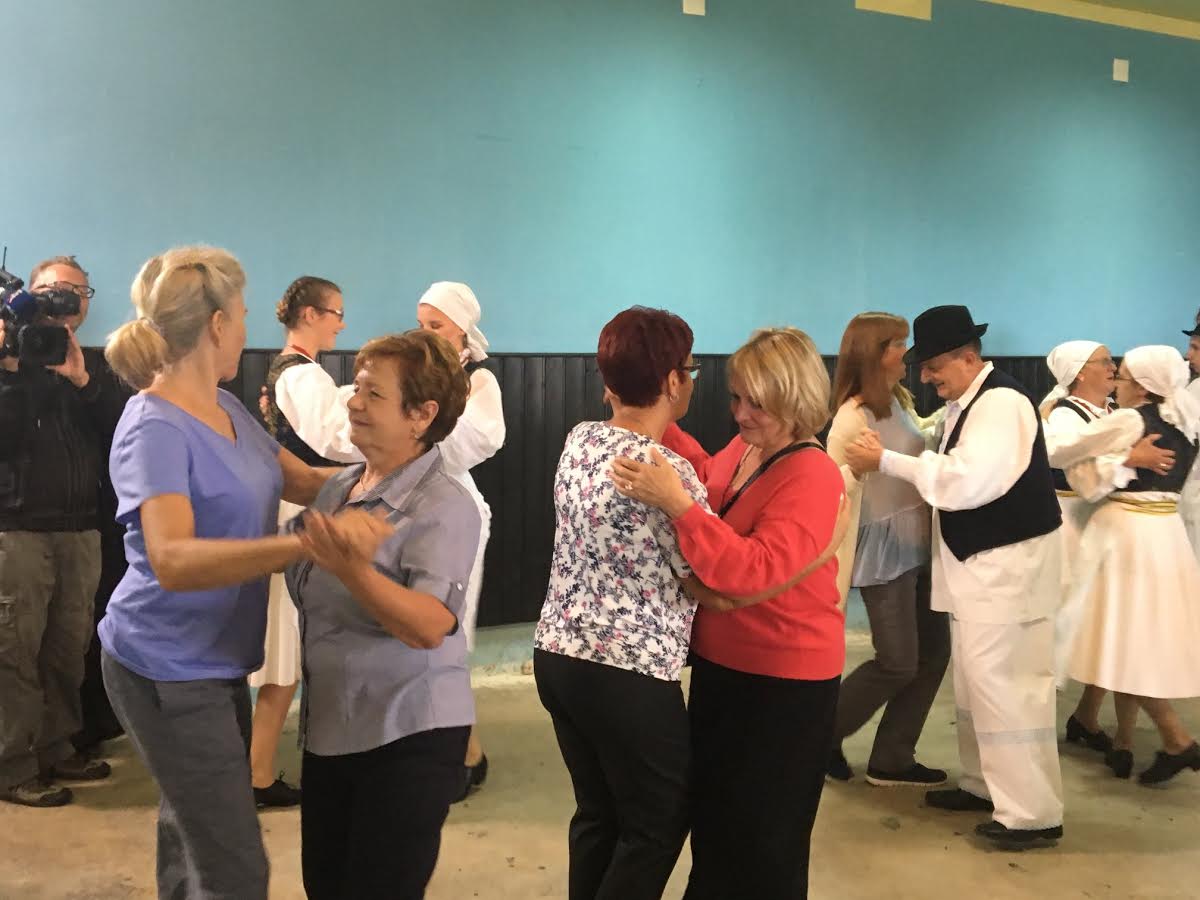
(Bonding with the locals in Gornje Bukovlje)
2. You also have various services for people trying to trace their Croatian heritage. Tell us about those.
The past 30 years have been a learning and sharing experience. As I delved into Croatian genealogy, I found I was able to help others, first on the old Croatian Ancestry forums and later on Facebook. Nowadays I offer 1 or 2 Heritage Tours to Croatia, Croatian Genealogy Seminars in various cities in the US, a Croatian Genealogy Handbook which I sell online in PDF format, and can offer genealogy services to many people gathering info to help them build a family tree.
Interestingly each of these came about from answering questions. First, someone suggested I do a seminar for the group, then someone suggested I take them to Croatia.
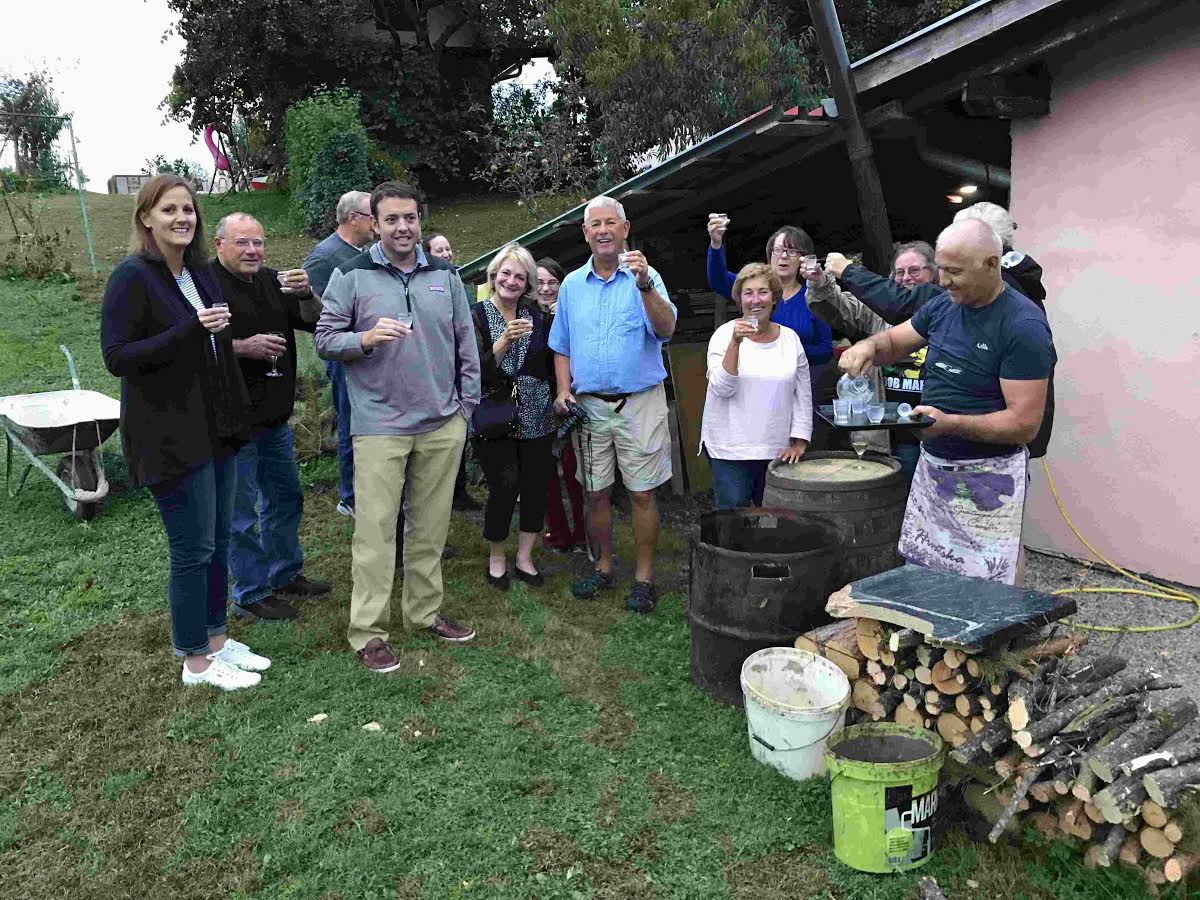
(Rakija stop at Plitvice Lakes with the Rubcic family)
3. Heritage tours must be incredibly uplifting experiences, as you bring people to the Croatian villages and homes of their ancestors. What does a typical tour look like?
Ah yes, the tours are very special. I still recall our first Heritage Tour in 2005. I had no idea how the tour would roll out, but as we went along people began to bring paperwork for their ancestors in America. We connected several people on that tour with their ancestral villages. And we were interviewed by Dobro Jutro Hrvatska during our visit to the State Archive. Since then we have been interviewed in print media, TV and radio.
Our typical tour includes famous places that people have heard about and think they need to see, such as Dubrovnik, Split, the common tourist places. But we try to introduce people places off the beaten path such as Smiljan the birthplace of Nikola Tesla, Lekenik, the Croatian Parliament, the famous but defunct resort of Kupari, the Lippizaner Stud farm at Djakovo, the Church of the Croatian Martyrs in Udbina, the Homeland War Cemetery in Vukovar, several castles including ones at Ozalj, Knin, Varazdin, Velike Tabor and Trakoscan, ethno selos at Trg/Ozalj, Kumrovec, Pakovo selo near Drnis, the pilgrimage villages of Marija Bistrica and Medjugorje, and one of three places in Croatia where Fiddler on the Roof was filmed, backroads in Dalmatinska Zagorje and a place we visit yearly the non-touristic village of Gornje Bukovlje where the local Ladies Club treats us to a day of music, dancing, eating and drinking.
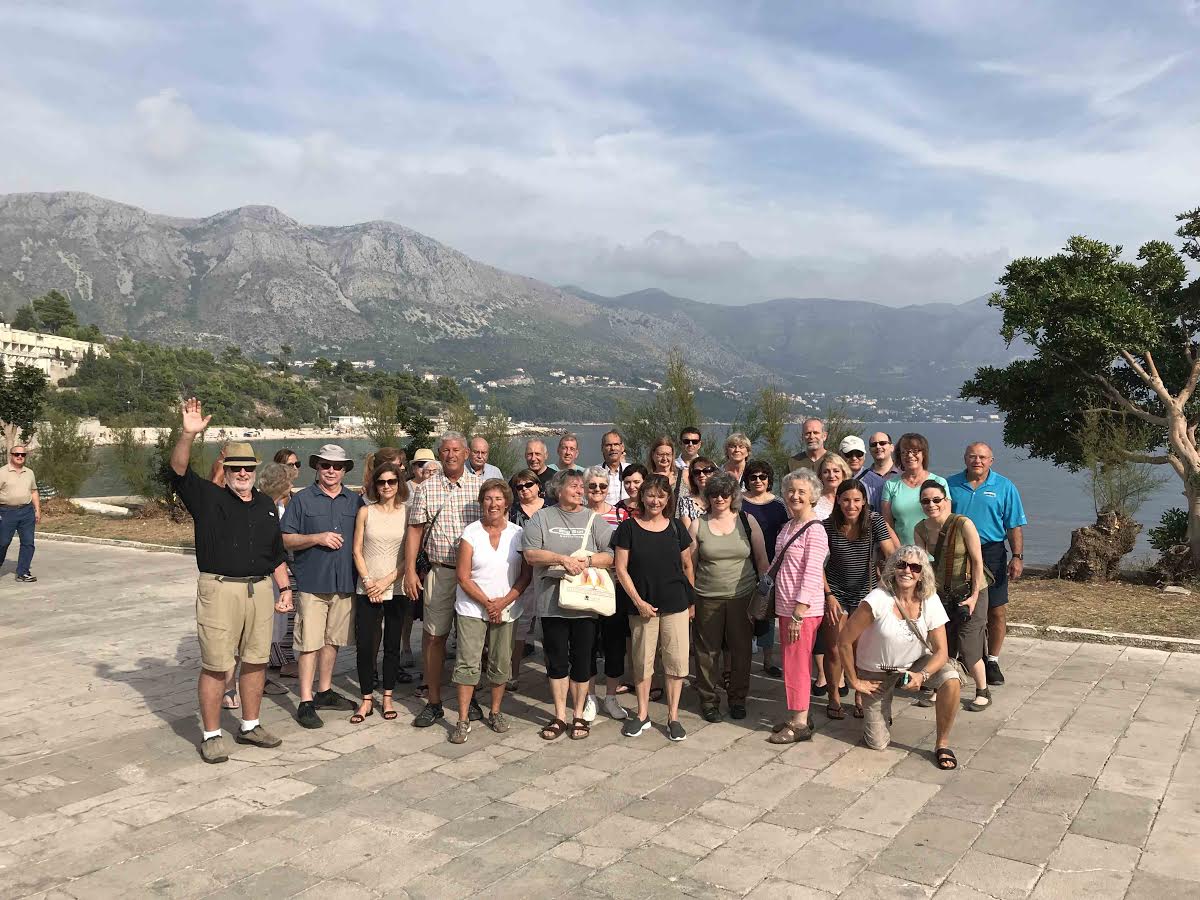
I emphasize to people that this place is as close as they will come to the Croatia of their ancestor’s day. We will even make surprise visits to ancestral villages of someone in our tour group if we are close. We set aside free time and encourage people to visit their ancestral villages, which we can help plan. And for those who want to do research, we have time planned on each tours at the State Archive in Zagreb. And I always seek out a place where we can enjoy traditional music, customs and food, such as Sarma. The tours bring out emotional responses from people.
The last several years we have added a week-long cruise on the Adriatic, employing small family-owned ships. These small ships are a great way to see the Croatian scenery, as you have a 180-degree view. We sail every morning stopping for lunch and a swim and then dock in the late afternoon in a historic port where we spend the night. Carrying about 38 passengers, breakfast and lunch service, a bar, a hot tube we reserve the entire boat for our group.
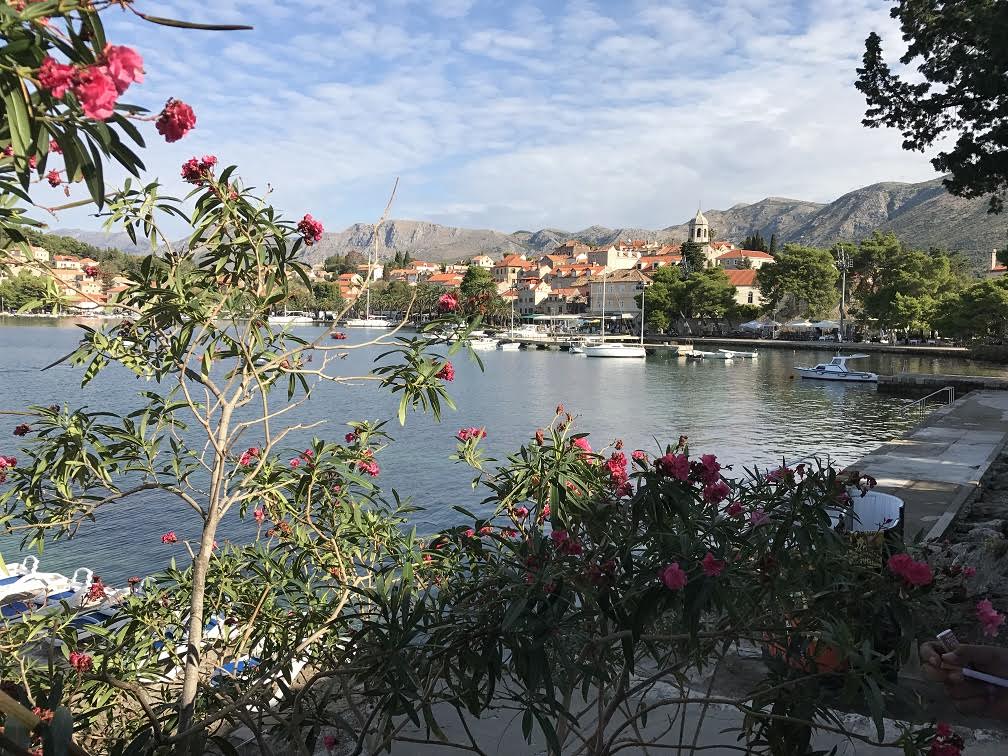
(Cavtat)
4. I am sure you have witnessed some amazing connections of people with their past on these tours. Any particular favourite stories and memories?
We have dozens of touching stories, having help connect people with long-forgotten family in Croatia.
A good example of the emotion of our tour group can be found in this Andrew Norris (a transplant from the UK), who lives much of the year in Gornje Bukovlje. This video is from our visit to Gornje Bukovlje in 2012.
One of my all-time favorites was a few years ago when we had a lady in our group, whom I had helped find her ancestral village of Jazevica. My Zagreb friend, Dejan Perhat, had located her family. On our way back from Osijek, we received a call from Dejan telling us her family invited the entire group to stop at their home in Jazevica. What an experience, they laid out their best sunka, kobasica, sir, kruh, kolache and of course a never-ending supply of various Croatian liqueurs in an outdoor pavilion. There was not a dry eye that day. Even those who had not planned a visit to their ancestral villages were inspired to do so.
I would be remiss to not mention others in Croatia who have helped: Sanja Frigan-Cihua, Lidija Sambunjak, my dear departed from Miro Caic, Zoran Stupar, Alen Miocevic (our guide since 2005) and our friends from Hrvatska Matica Mirjana Piskulic, Branka Bezic-Filipovic and Hrvoje Salopek.
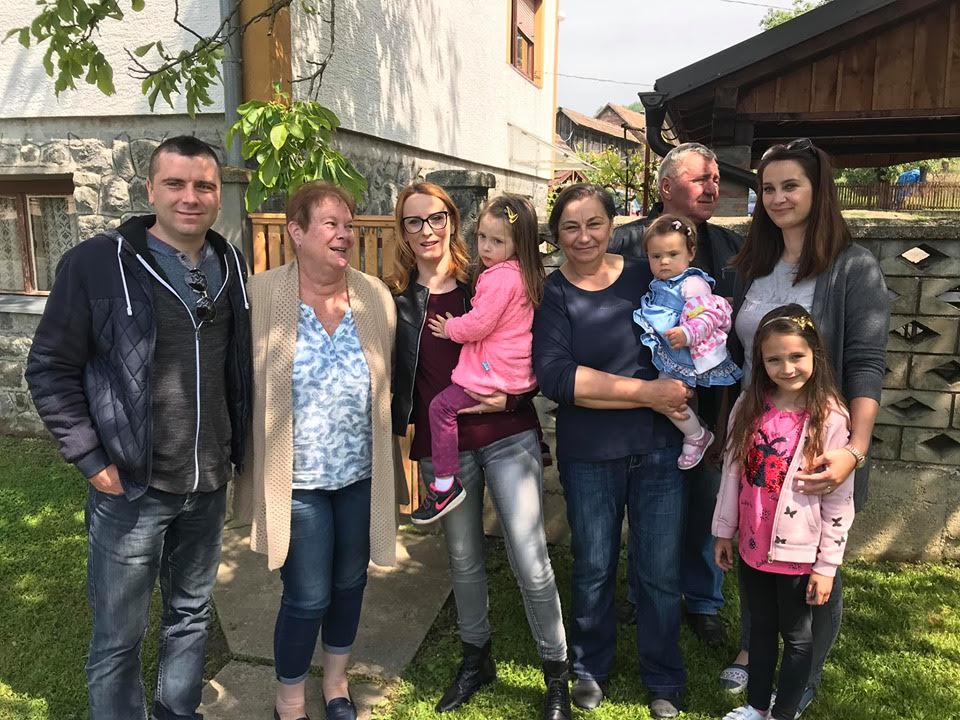
(Ancestral visit to Jazevica)
5. You have performed great work helping people trace their Croatian roots online as well. What are the most common enquiries and requests for help?
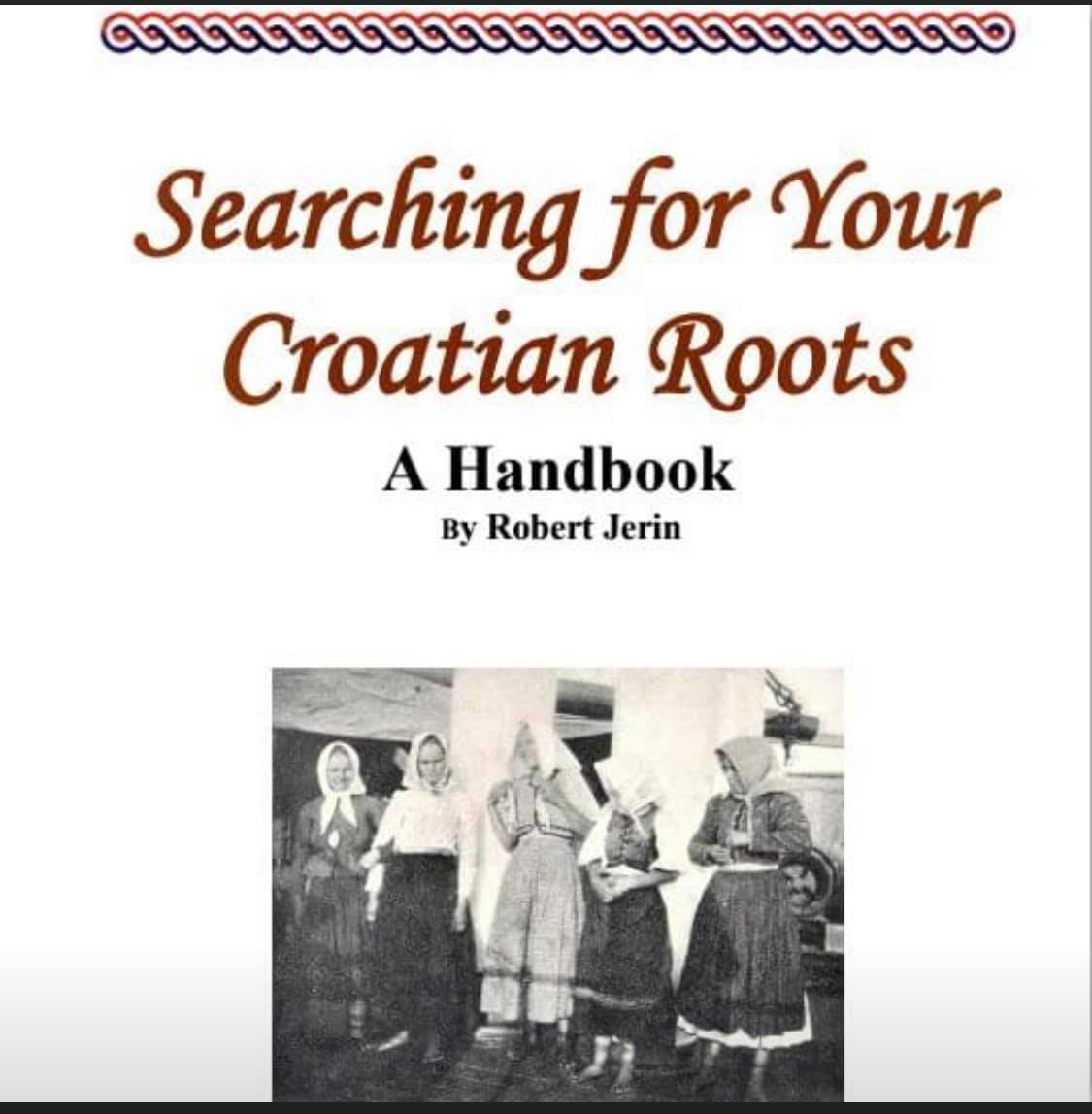
Many people begin by simply asking about a surname, little do they realize the surname may be quite common in Croatia. After some prodding they come up with more details. In most cases we have a high degree of success, even though they may only know the Anglicized surname. Funny that many people say their ancestors came from Zagreb. But in fact Zagreb was a well-off city that offered employment, thus very, very few left that city for America in the early 20th Century. Most came from small villages seeking to make money in America in hopes to return home and buy land. Perhaps 25% or less actually fulfilled that goal as most found a new life in America. I always tell people they need to work backwards from themselves, parents, grandparents in order to establish a town or village of origin in Croatia.
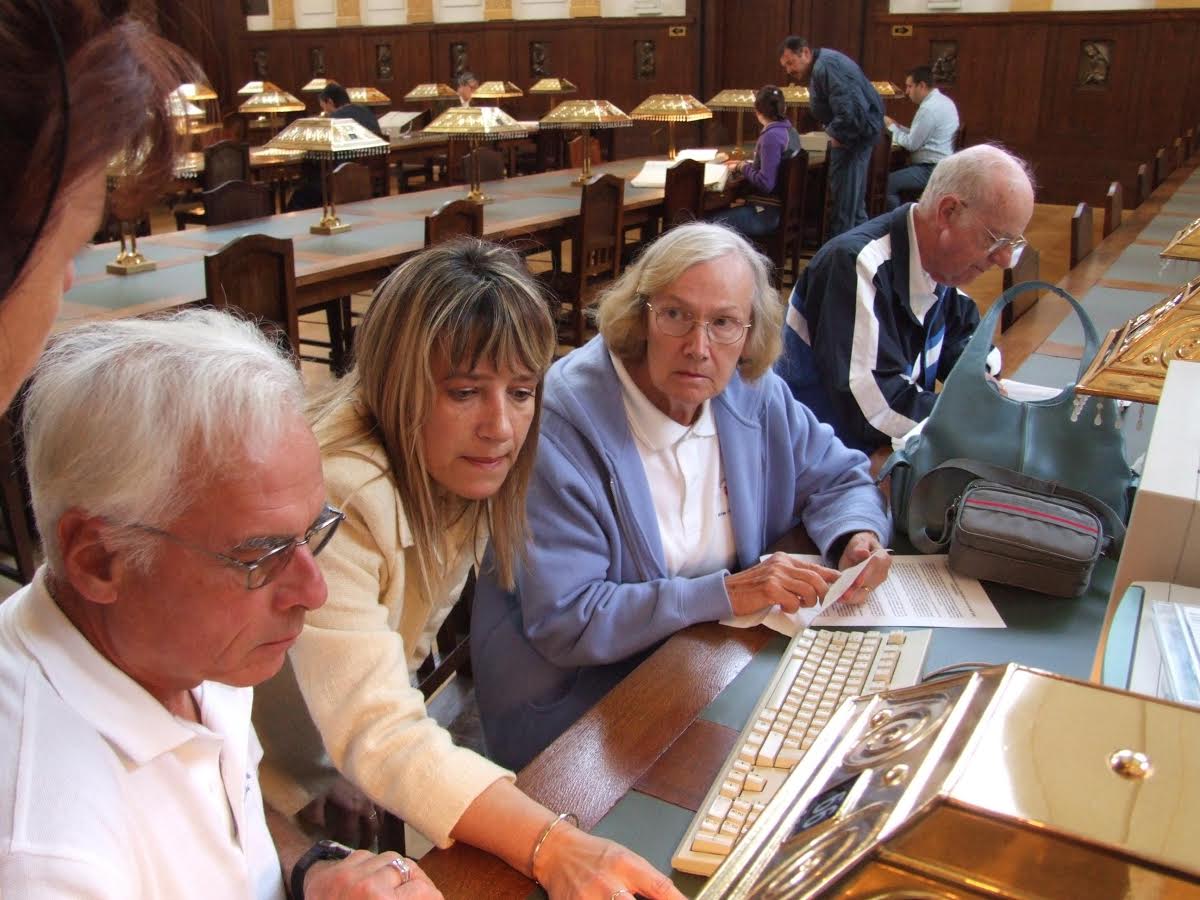
(Heritage research at Zagreb State Archives)
6. Tell us about moderating the Facebook group. Anything that focuses on the past in Croatian is almost always contentious, but you manage to keep things very civil.
This is sometimes a challenge but most of the people in our group are very kind and helpful. While I certainly can discuss politics I have banned political discussion from the group. Everyone now and then we have someone object, but the rules are clearly stated in the welcome to the group. It is not always easy, having been called a censor (yes, I am sometimes), a communist, a fascist among other unmentionable names. But when I part company with members who do not agree with the purpose of our group, I always try to leave them on a good note.
I am surprised how even some Croatian born people are not as well versed in their history as one would imagine…. But again our group is to share such knowledge.
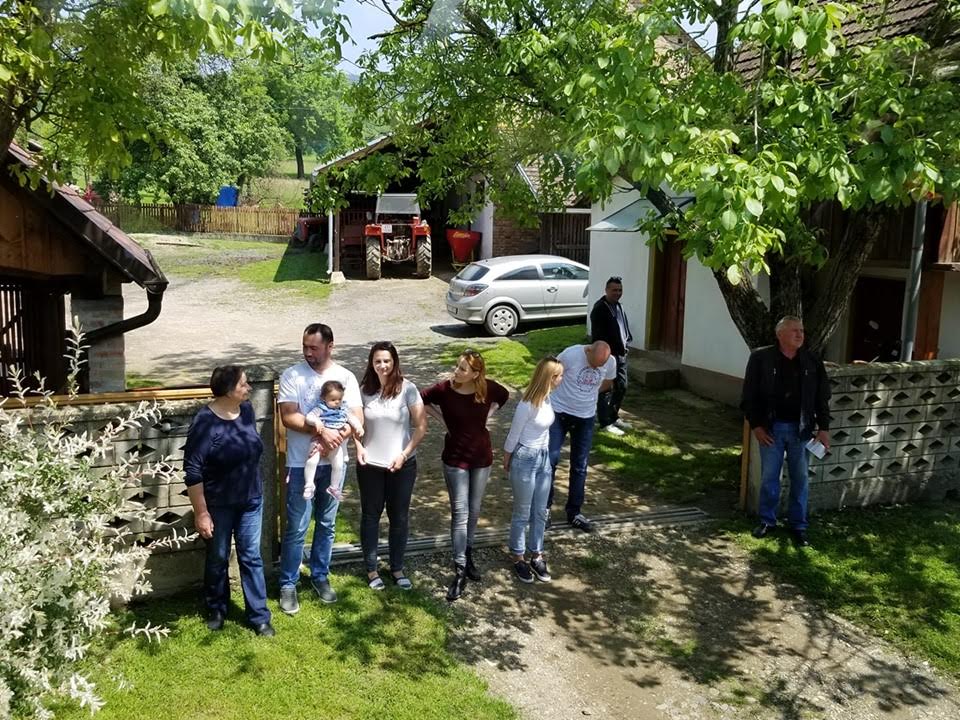
7. How closely do you follow daily events in Croatia, and how do you view Croatia today from your perspective in the States?
I get a Google News Feed every day of Croatian news, including Total Croatia News. And I Skype every week with my friend and guide in Rijeka, Alen Miocevic. So I follow the news and events somewhat closely.
I view Croatia as a place of great possibilities which may be a bit stymied by negative attitudes of some and a bureaucracy which has a long history in Croatia dating back to the days of the Austro-Hungarian Empire. But I view Croatia as a place that is improving and trying to find its place among the larger countries of the world. As I am wont to say, korak po korak (step by step).
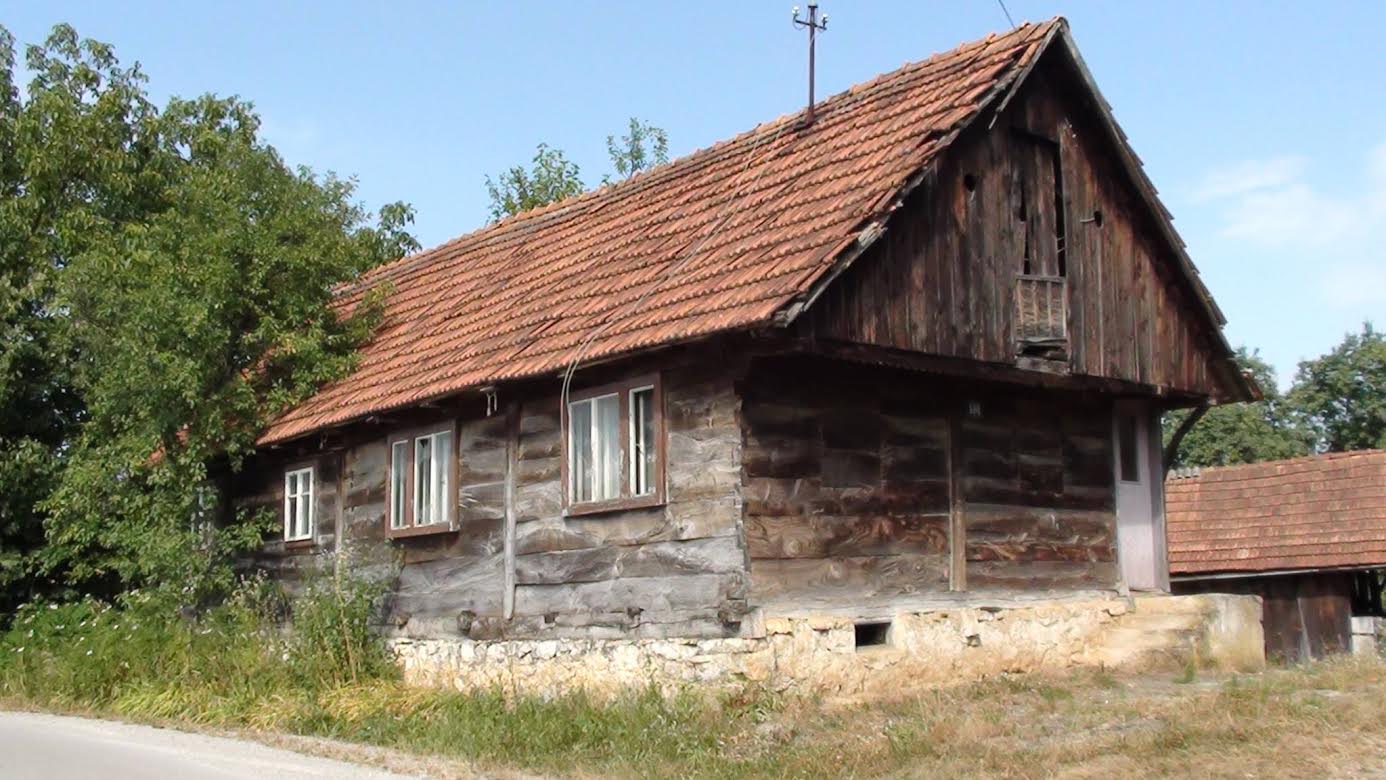
8. And finally, favourite place in Croatia, and why?
Oh my this is an unfair question. We have many favorite places in Croatia, but always feel like we are coming home when we visit Gornje Bukovlje. While I enjoy the famous places, I love visiting places off the beaten path. we get to visit many ancestral and interesting places off the beaten path. Sosice in Zumerak, land of the Uskoks, Delnice frog museum, Lokve, Mrkopalj, Lič and Prigorje. These were surprise stops for people whose ancestors were born there. All these places have some significant place in Croatian history but are largely bypassed by tour groups. Occasionally we will surprise the group with a roadside picnic where we enjoy sampling Croatian food and drink One of my favorite things is to get up before the tour group and take walks. I am amazed at some of the places I find and wonder why tour guides don’t take us to those places, but I guess they like taking groups to Lotroscak Tower at noon for the firing of the cannon.
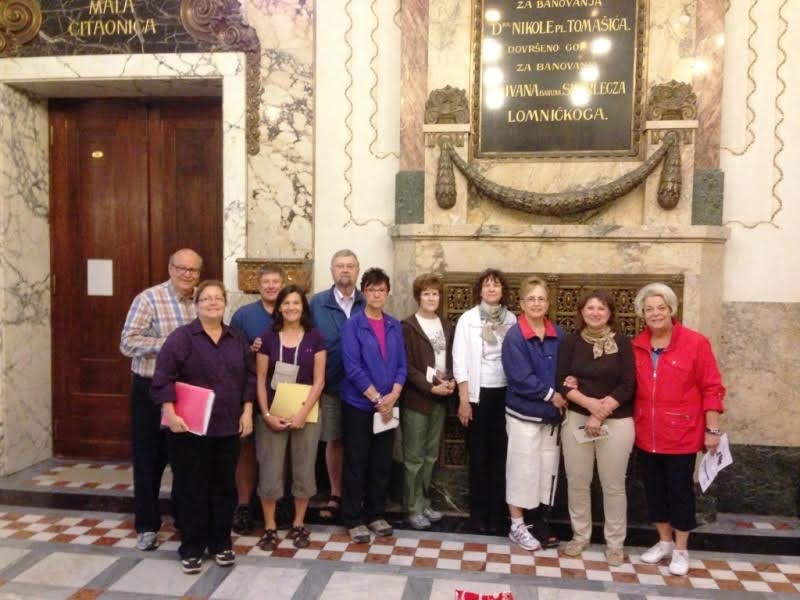
You can follow the excellent Croatian Heritage and Genealogy Facebook group here.
And if you are interested in joining one of the 2021 heritage tours to discover your Croatian roots, here are the links to the groups in July and in September.
For more from the Croatian diaspora, follow the dedicated TCN section.
Connecting the Diaspora: Croatia Meeting G2 Returns for 6th Edition
October 27, 2020 - An important gathering for the strengthening of ties between Croatia and its diaspora takes place next month as the 6th edition of Croatia Meeting G2 takes place in Zagreb.
One of the things I have been monitoring over the last few years has been the growing cooperation between Croatia's entrepreneurial sector and the business-minded members of the Croatian diaspora - it has been an exciting journey to observe as a foreign fly on the wall.
On the surface, things should be fairly simple. The diaspora are successful, weatlh-creating and extremely patriotic. Croatia should be an obvious place for investment and economic cooperation. And while it is true that foreign remittances from the diaspora was more than direct foreign investment to Croatia last year, it is also true that many in the diaspora are extremely reluctant to throw money in Croatia, having suffered many bad experiences with money sent and invested during and in the aftermath of the Homeland War.
One of the key things missing is trust. Finding the right partner in the homeland is not always easy, especially when the culture over the generations is to put trust and faith in a distant cousin in the homeland, often with disastrous results.
Thankfully, things are changing, and there are now various initiatives bringing the diaspora closer to the private sector in Croatia. Croatia's young entrepreneurs are engaging more with their diaspora counterparts, relationships are being formed, and business is getting done. Trust is returning as private business engages with private business.
One of the best of these initiatives is Croatia Meeting G2, which is organised by a mixture of Croatian and diaspora professionals, all of whom are committed to a strengthening of ties and a better Croatia. Held each year in Zagreb, Meeting G2 returns for its sixth edition next month, and it is one of the premier diaspora networking events in the Croatian business calendar.
As one of the few foreigners with no Croatian heritage to attend these events, I find it fascinating to watch so many sections of Croatian society to come together - some without even a common language, but all bonded by a passion for Croatia itself. Some diaspora conferences are more about emotion than substance, but I have always found the G2 programme stimulating, with a wide selection of guests and topics - and I have never left it without making new friends and several new interesting stories for TCN.
This year's event - Croatia Meeting G2.6 takes place once more at Forum Zagreb Congress Centre in Green Gold, with a wide variety of local, diaspora and international speakers on some fascinating Croatia-related topics. Having attended the event for some years now, I am delighted to be asked to speak at the conference for the first time. I will be participating in a panel on the second day called 'World' First Haven for Digital Nomads.' Moderated by Eugene Brcic Jones, the other panel speakers will be digital nomad visa champion Jan de Jong (from Split via Zoom), Tanja Polegubic, Andres Wil Gerdes (from Malta via Zoom) and Katarina Bulic Bestulic.
You can check out the current schedule of sessions below.
Day 1 - Wednesday, November 16
Day 2 - Thursday, November 17
For more information about the Meeting G2 sixth edition, and to register, visit the official website.
For more news from the Croatian Diaspora, follow the dedicated TCN section.
The Croatian American Story with 1980 USA Olympic Hockey Gold Medal Winners
May 14, 2020 - A look back at the Croatian American connections in the 1980 USA Olympic Hockey Gold Medal triumph.


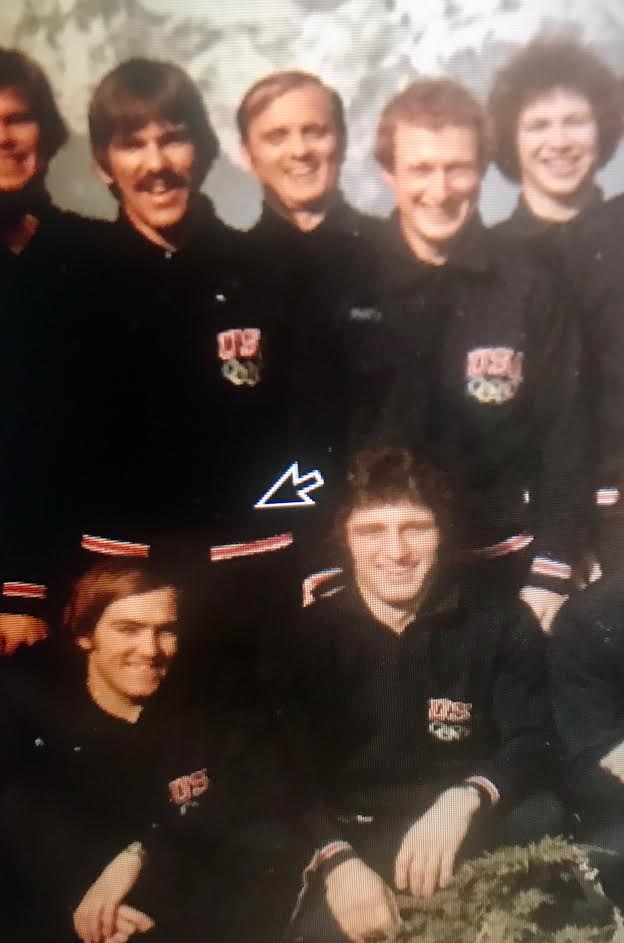
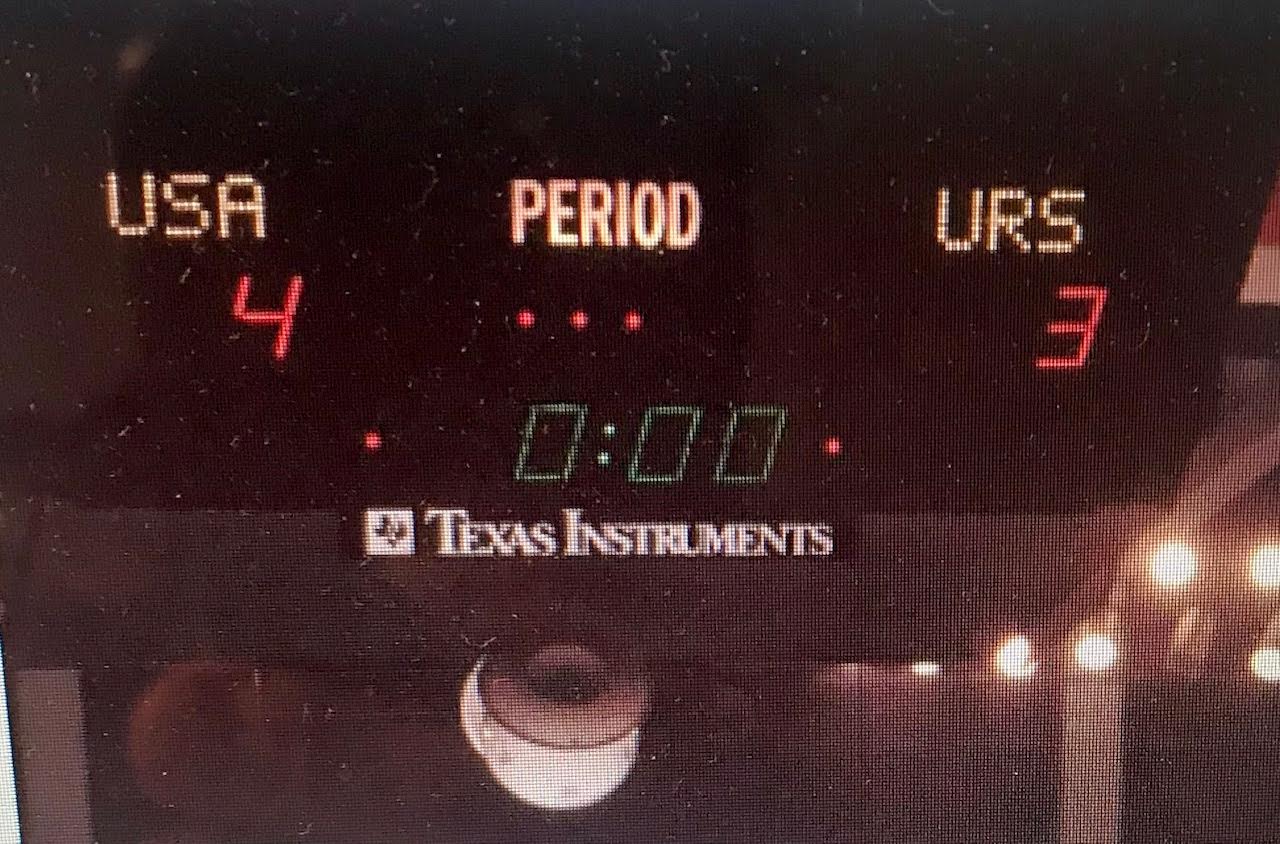
Croatian Americans Raise 160,000 Dollars for Croatian Hospitals
ZAGREB, April 15, 2020 - The Association of Croatian American Professionals (ACAP) has raised over $160,000 to help Croatian hospitals purchase medical equipment and supplies after the March 22 earthquake in Zagreb and the COVID-19 pandemic.
The first instalment of funds was transferred on Tuesday to a charitable fund “Croatia against Coronavirus” established by the Croatian government.
"We understand that help is needed and needed now, especially for the new born and those most vulnerable... These are difficult and uncertain economic times for everyone, including our members. The show of unity and support across all parts of the United States has been extraordinary," ACAP vice president Steven Pavletić said, adding that more than 400 donations have been made.
The campaign has been coordinated with ACAP's Zagreb chapter, which is chaired by Don Markušić, an Australian lawyer of Croatian descent.
"We have been in daily contact with the hospitals in Zagreb and the Croatian Ministry of Health to identify their most critical need which at this stage appears to be a new neonatal incubator for Petrova Hospital," he has said.
The ACAP brings together business leaders, academics, lawyers, doctors, students and community organisers in the US.
More diaspora news can be found in the dedicated section.
Only Several Thousand Croats From Abroad Have Come Home for Easter
ZAGREB, April 12, 2020 - Over the past four days only several thousand Croats came home from abroad for the Easter holidays whereas in previous years 170,000 would do so, the head of the national civil protection authority, Interior Minister Davor Božinović, said on Saturday.
Speaking on Nova TV, he said a little over 700 Croats had entered Croatia per day on average over the past four days and that the figure included repatriations organised by the Foreign Ministry.
He said that upon entering the country all were instructed to self-isolate or quarantine in line with COVID-19 protection measures.
He concluded that most Croats abroad had listened to the appeals of the national civil protection authority not to come home for Easter because of the coronavirus epidemic.
More Easter news can be found in the Lifestyle section.
As Many as 50 000 Expats Could Return to Croatia
ZAGREB, April 6, 2020 - Croatian expats who lost their jobs in EU members states have started returning to Croatia following the outbreak of the coronavirus, aware that medical expenses, in case they get infected, will be much higher there than in Croatia, the Večernji List daily wrote on Monday.
In case the crisis lasts, the number of expats returning to Croatia will rise because as foreigners in other EU countries they will be among the first to get laid off, the daily said.
According to demographer Stjepan Šterc, those who left Croatia over the past several years will return to Croatia because they will lose their jobs in the crisis and will be unable to pay expensive rents and apartment leases in the EU.
It is difficult to estimate how many of them will return, but under the assumption that approximately 350,000 Croats have emigrated and that many of them will lose their jobs during the crisis, it can be estimated that up to 50,000 of them could potentially return to Croatia, Šterc said.
This does not mean that all of them would return immediately, but this and over the next several years. The number of the returnees will depend on Croatia's reaction to the economic crisis, the daily said.
More diaspora news can be found in the dedicated section.


